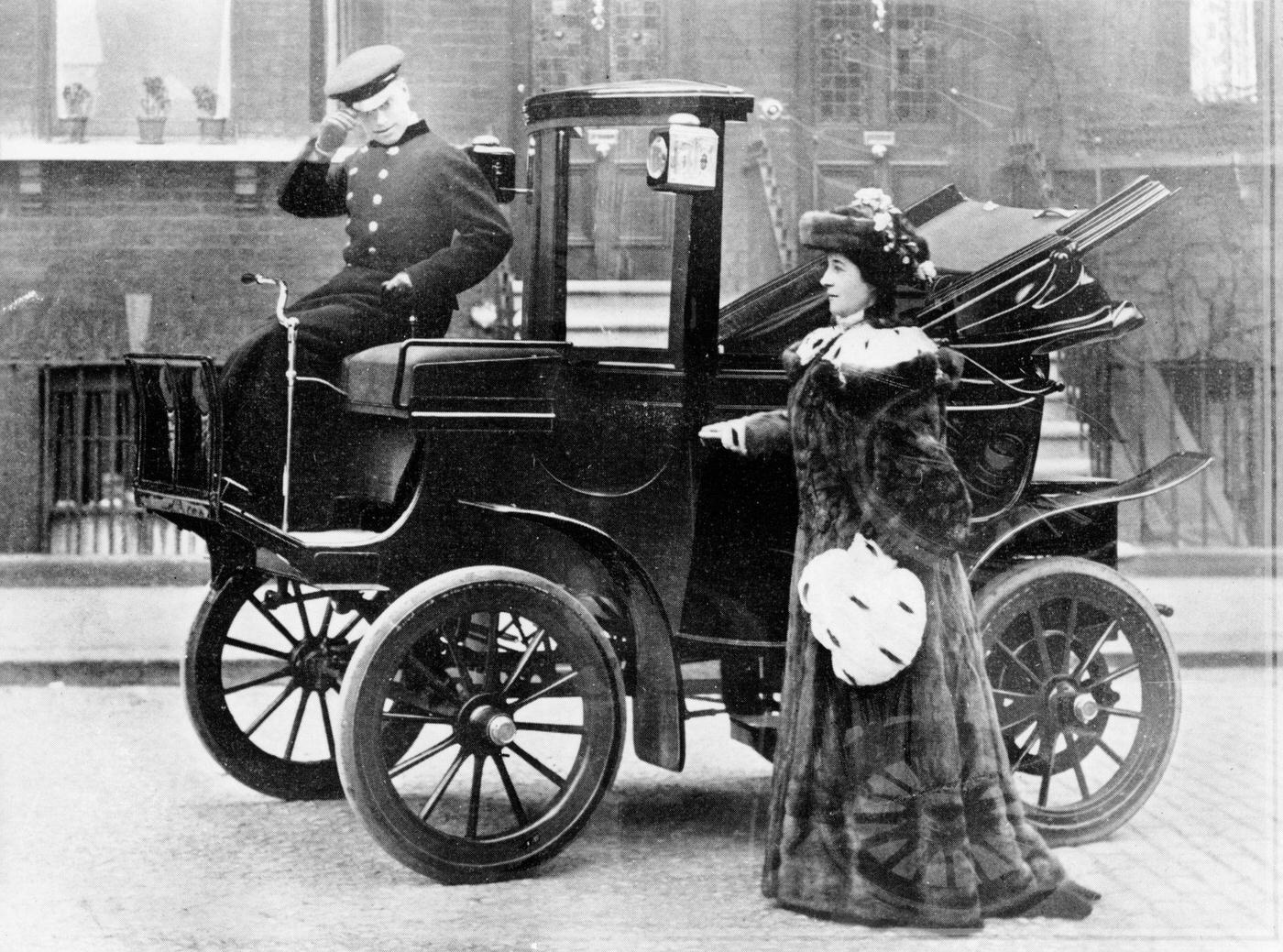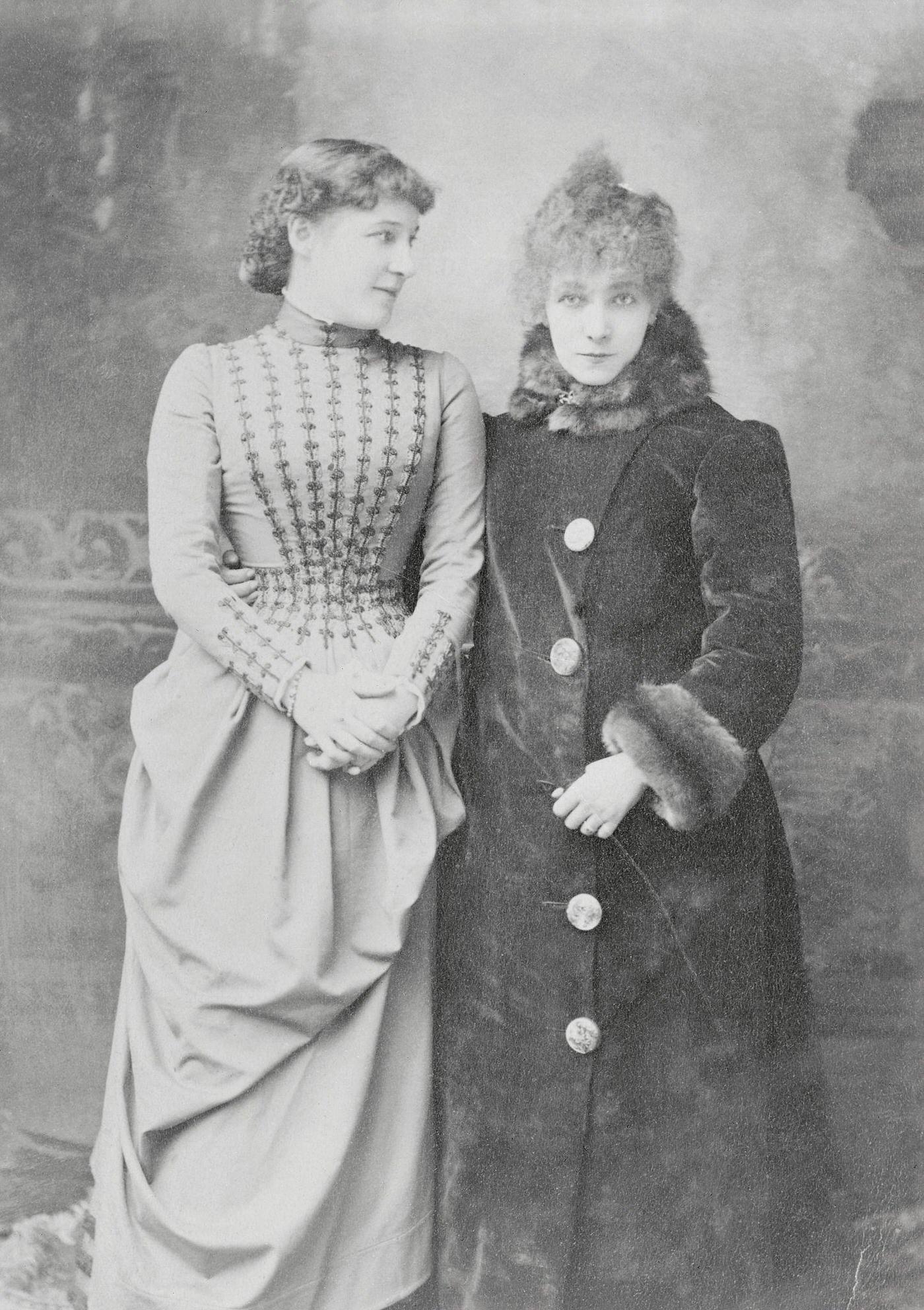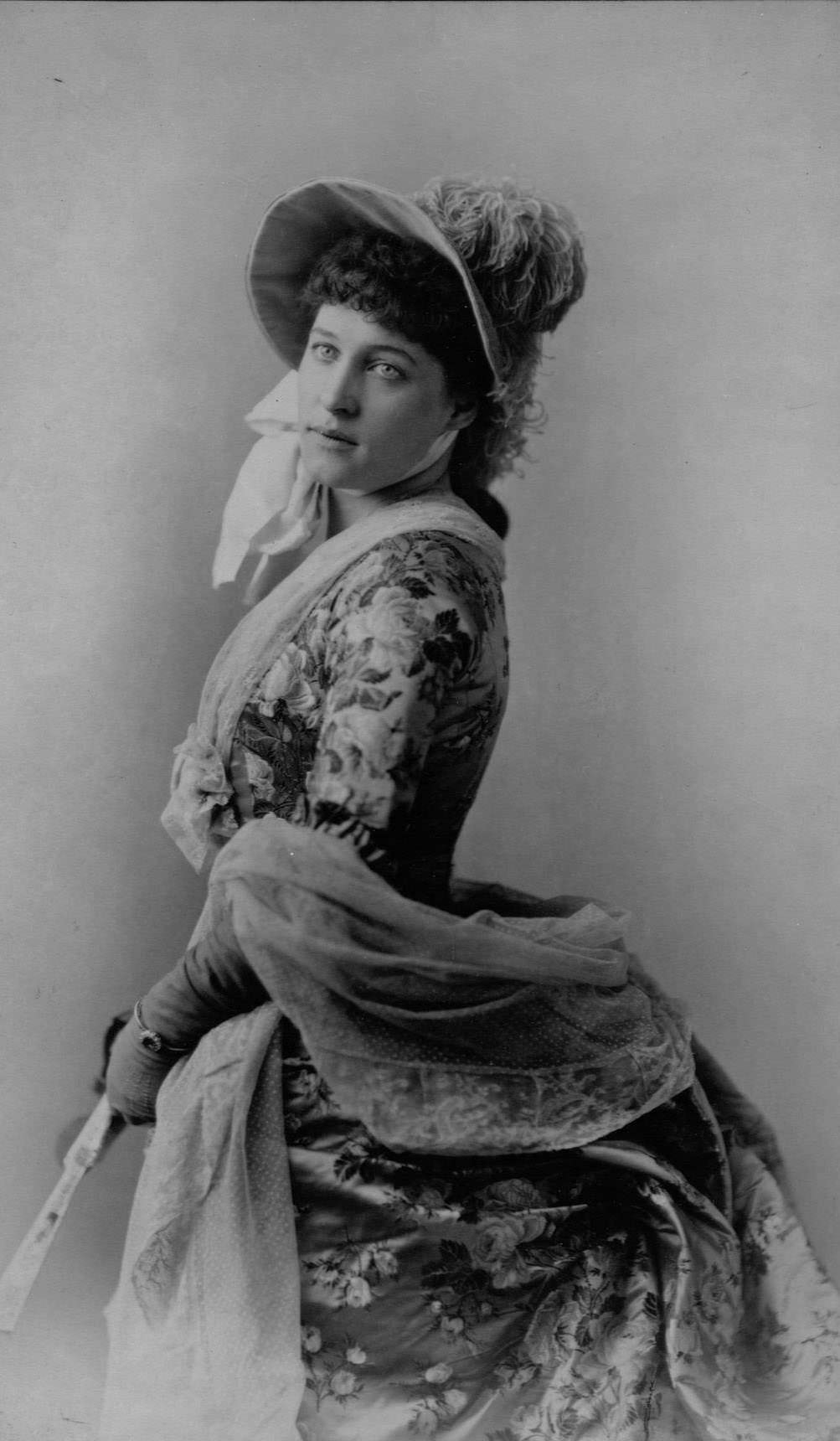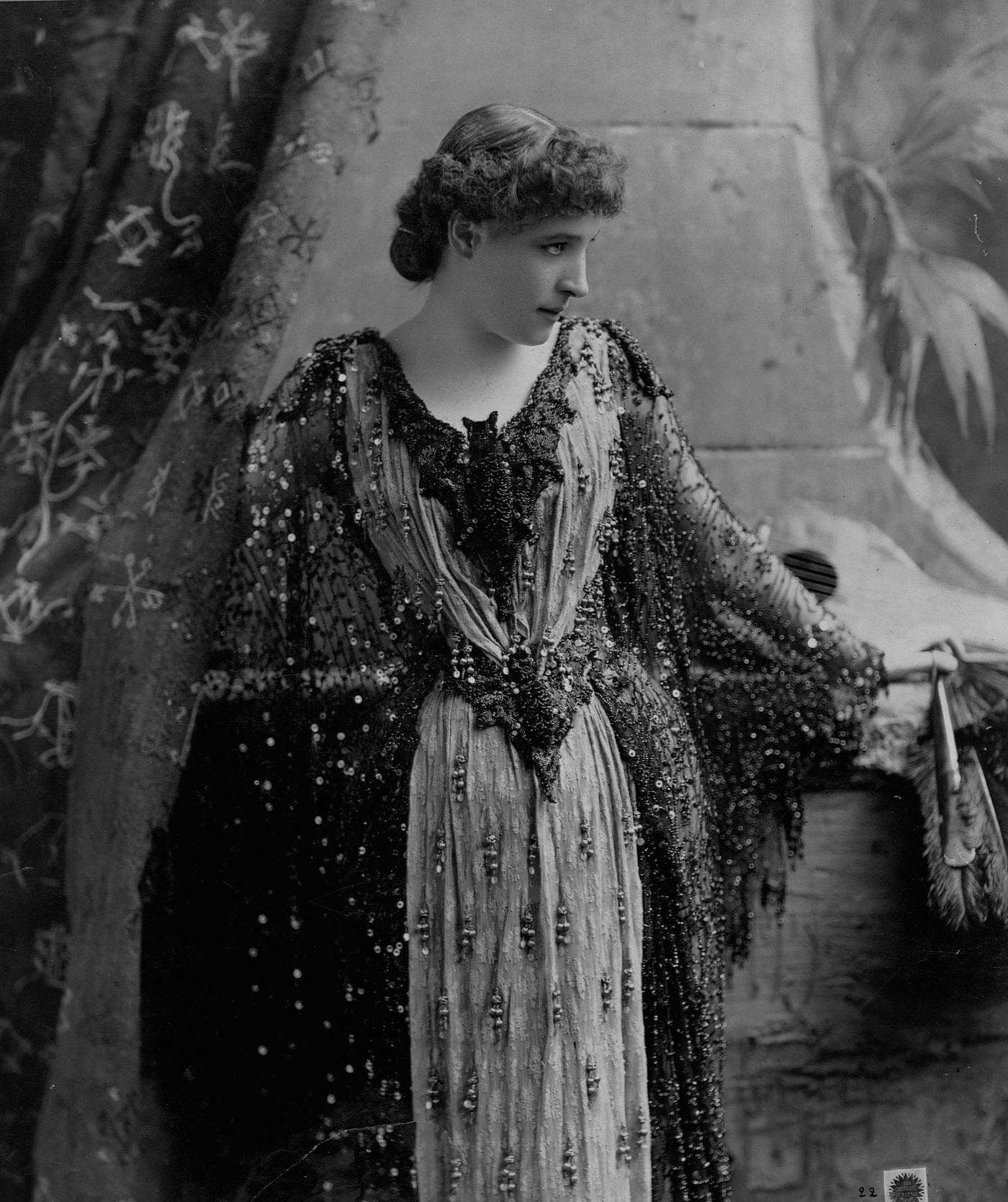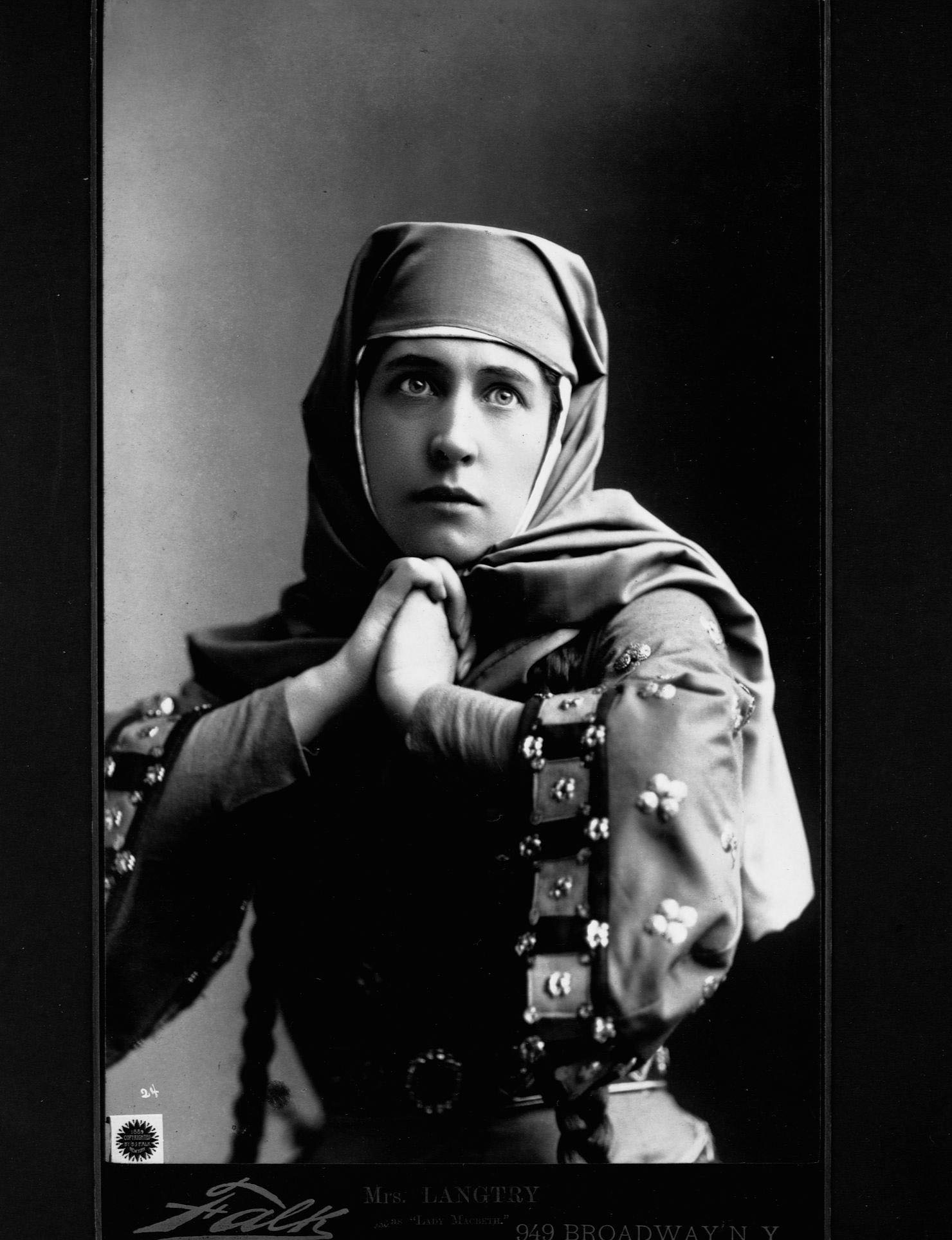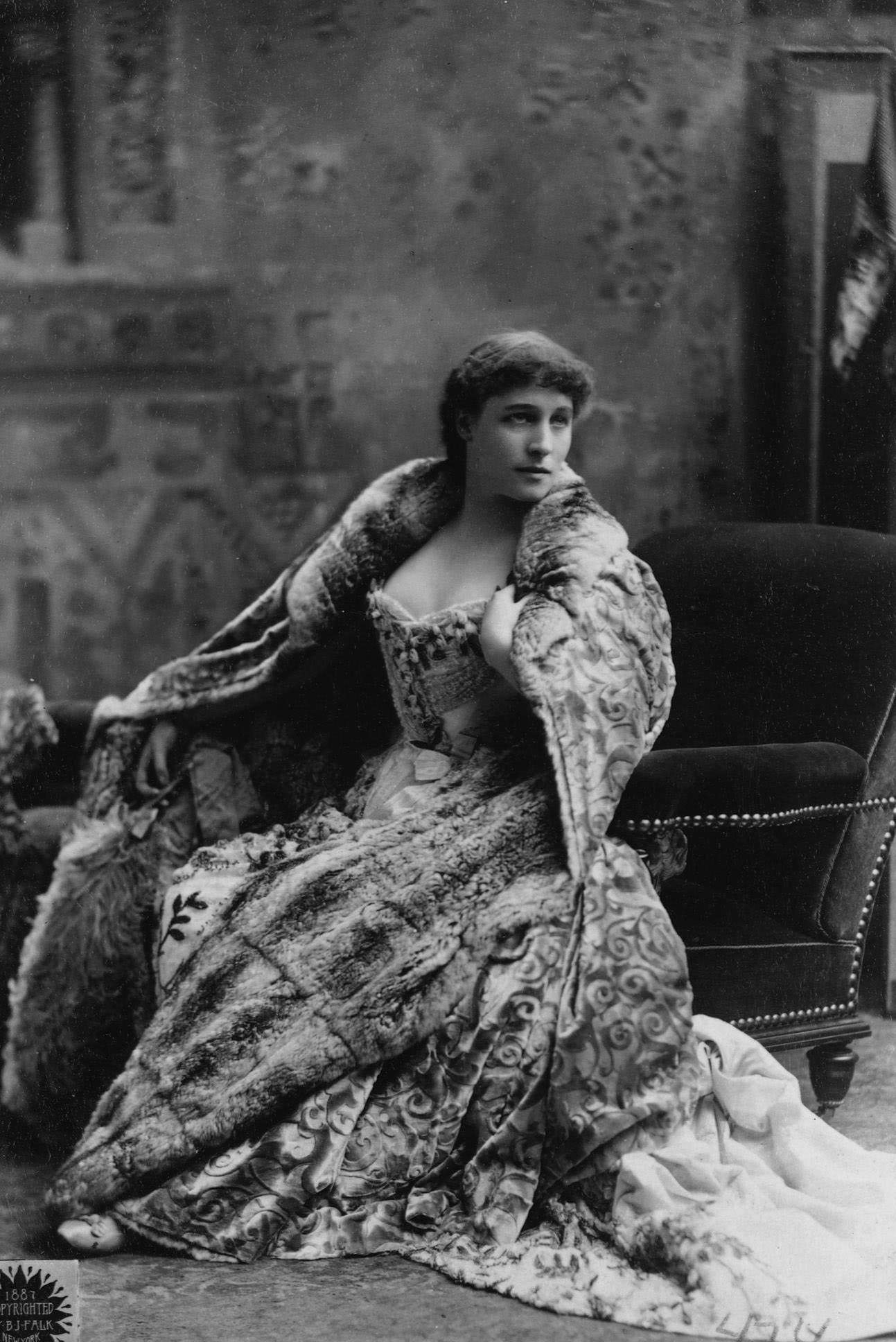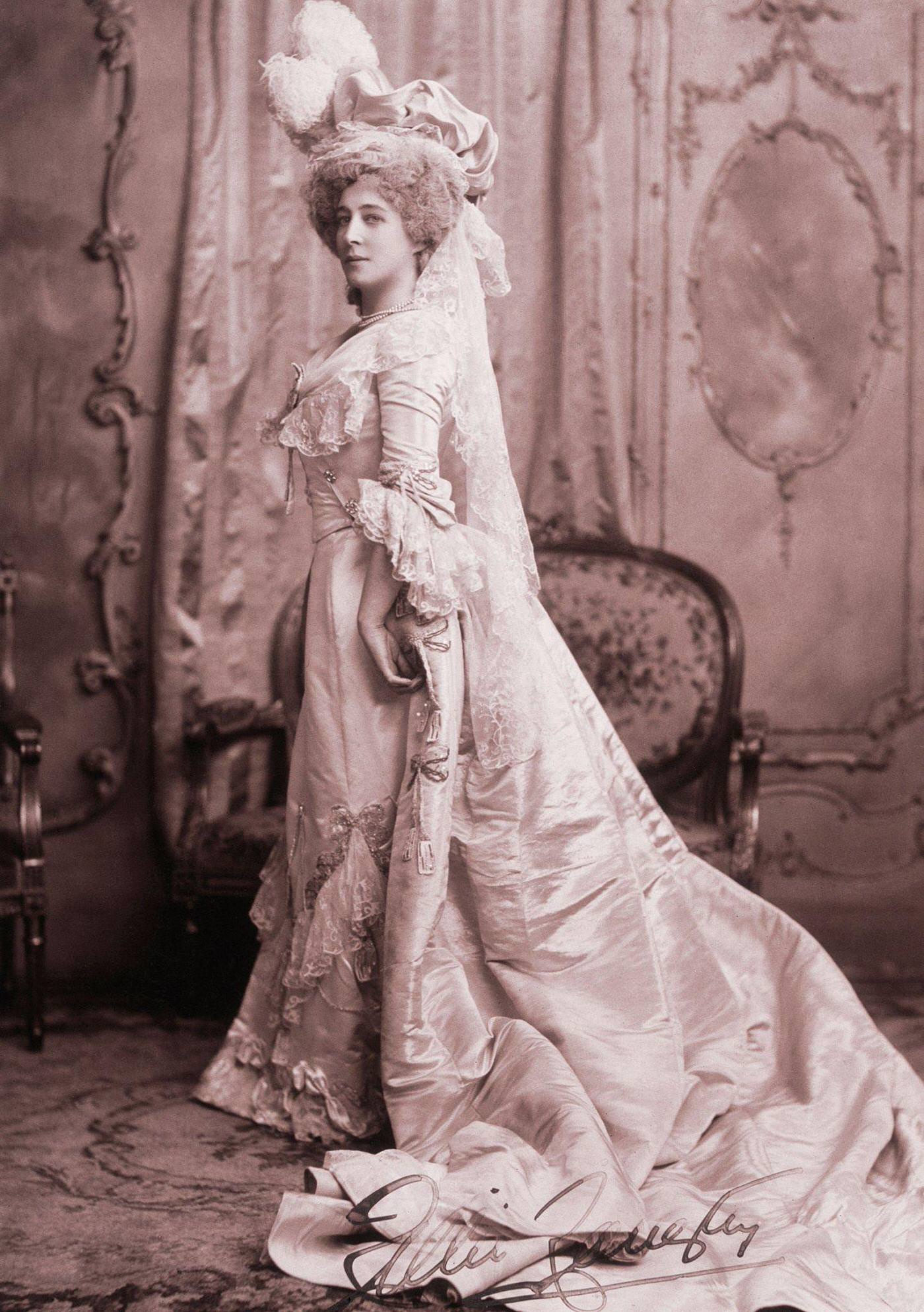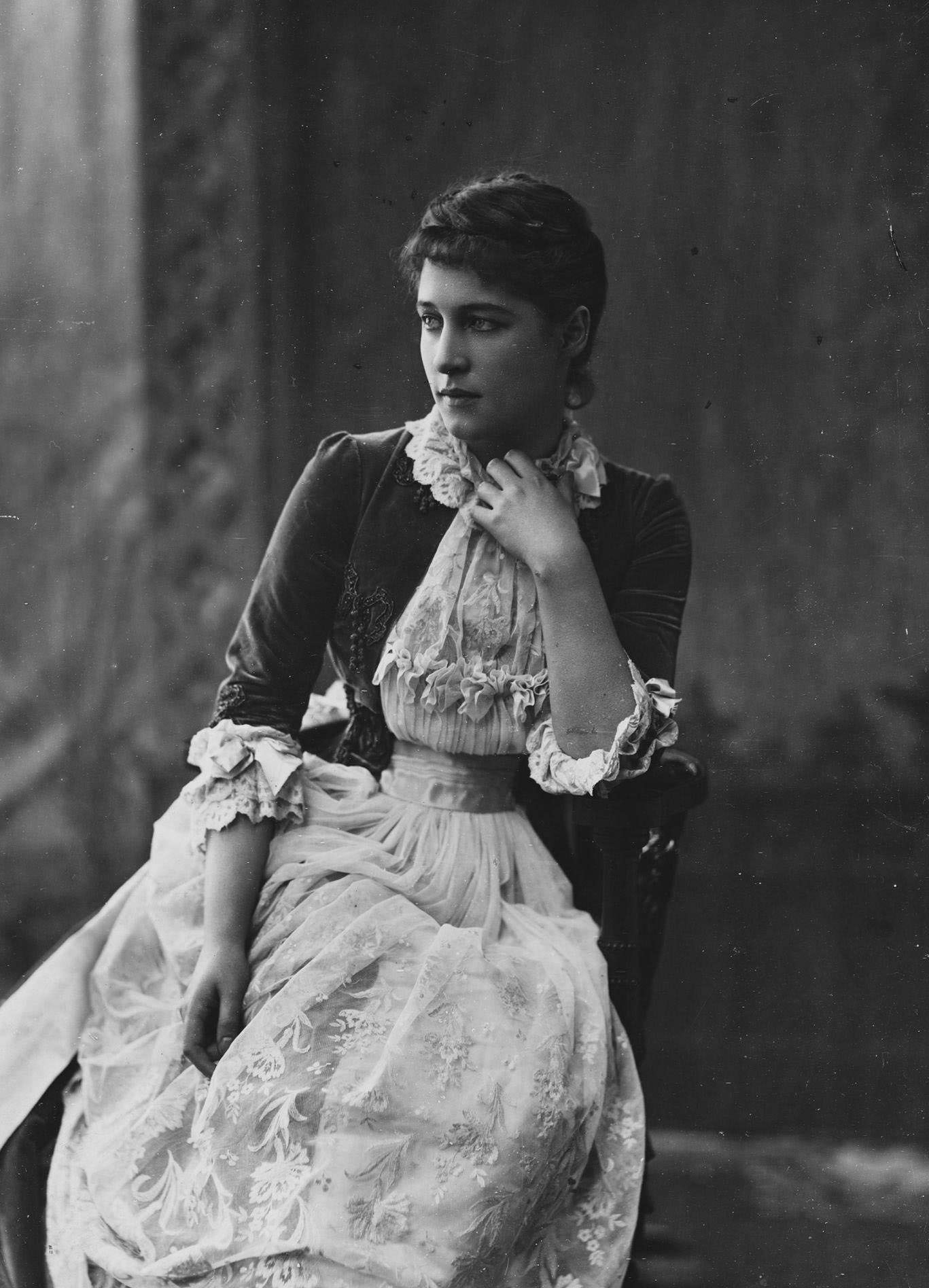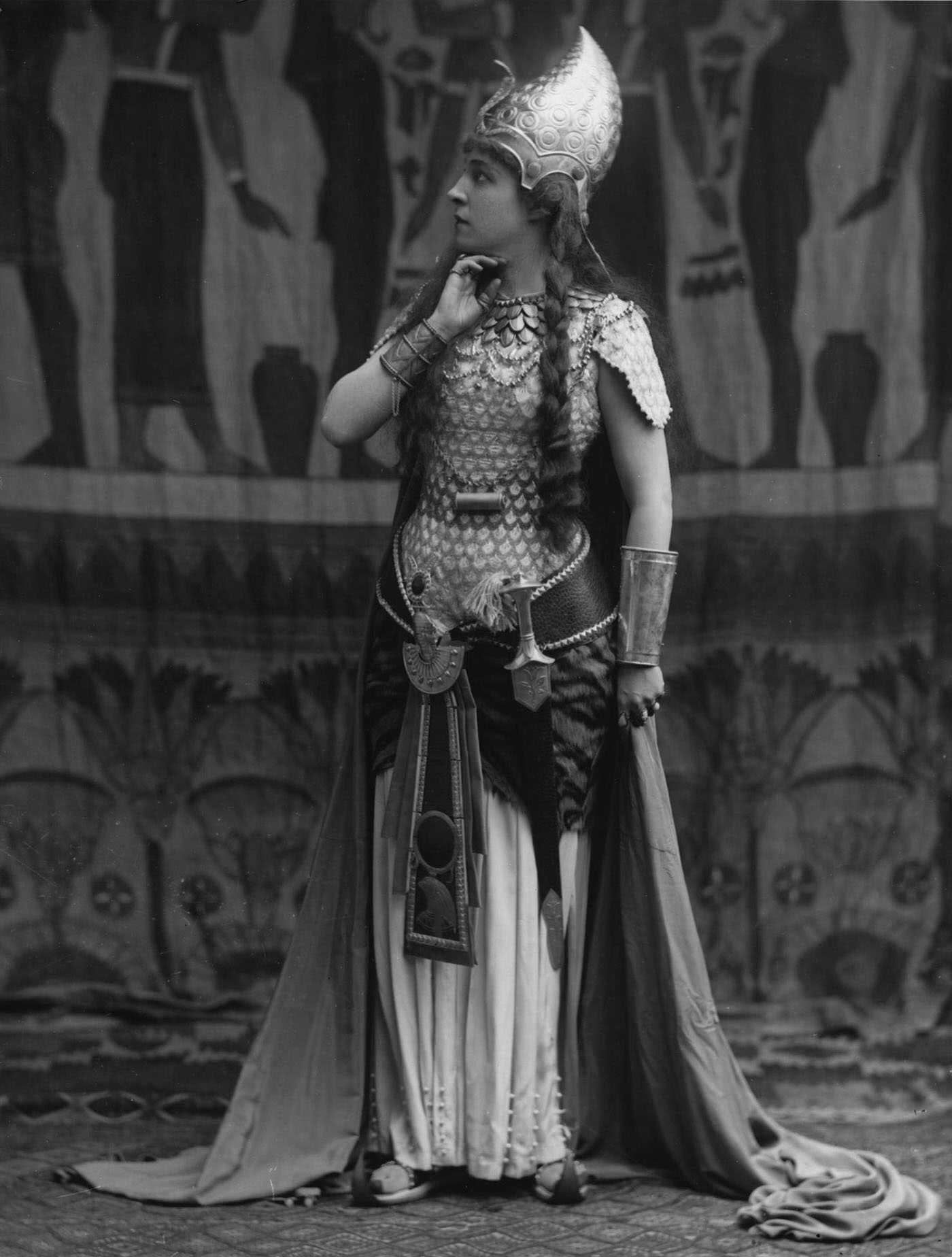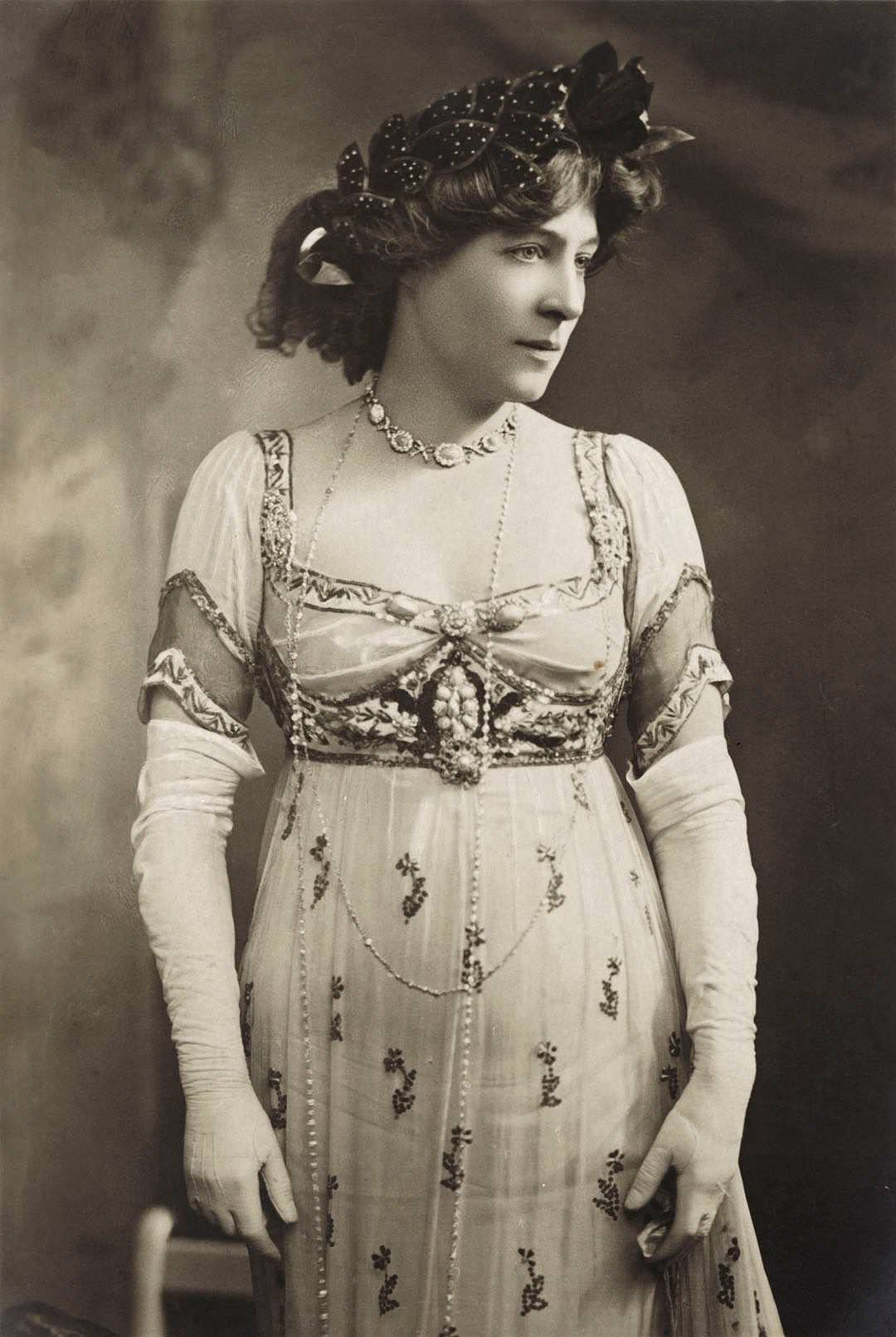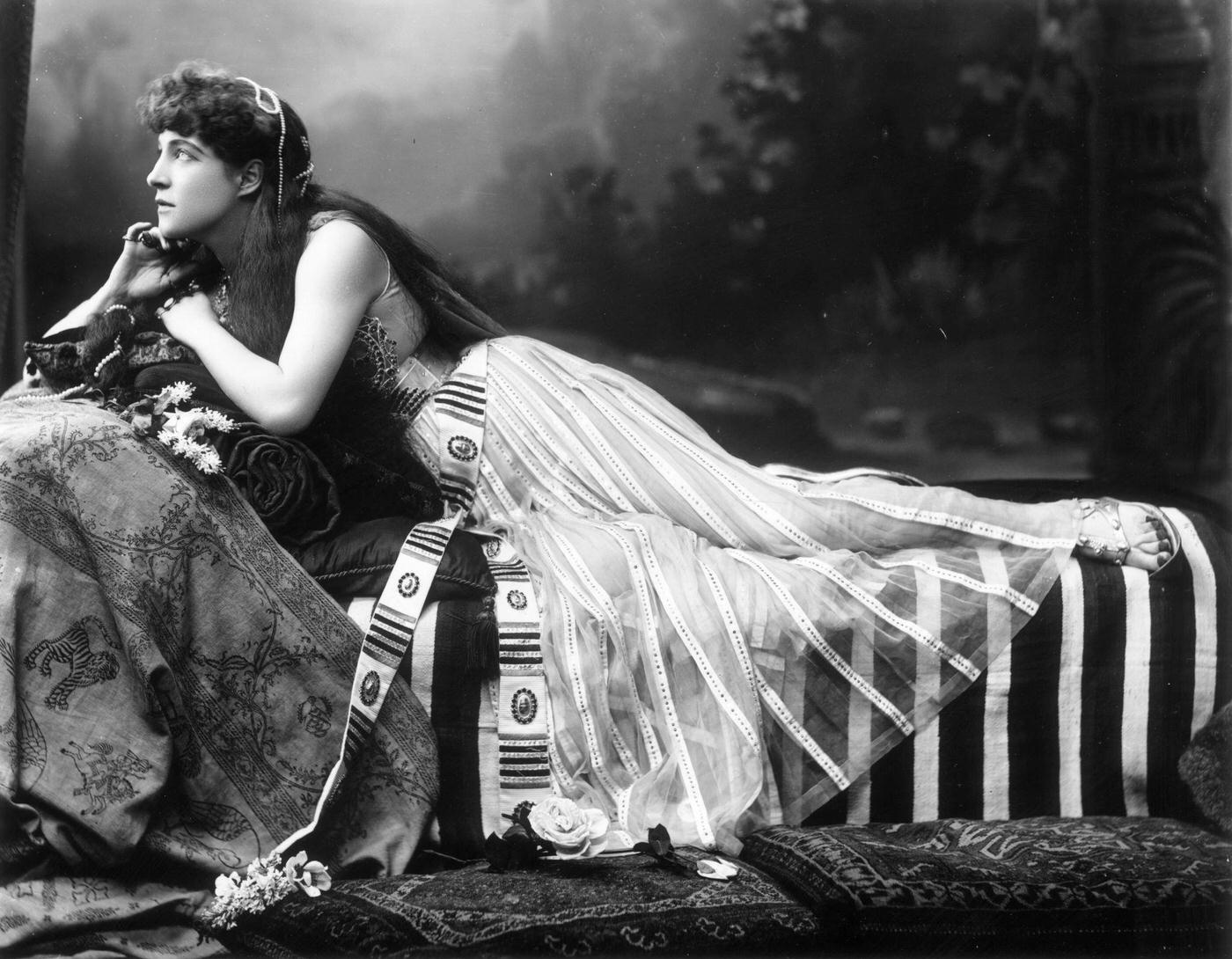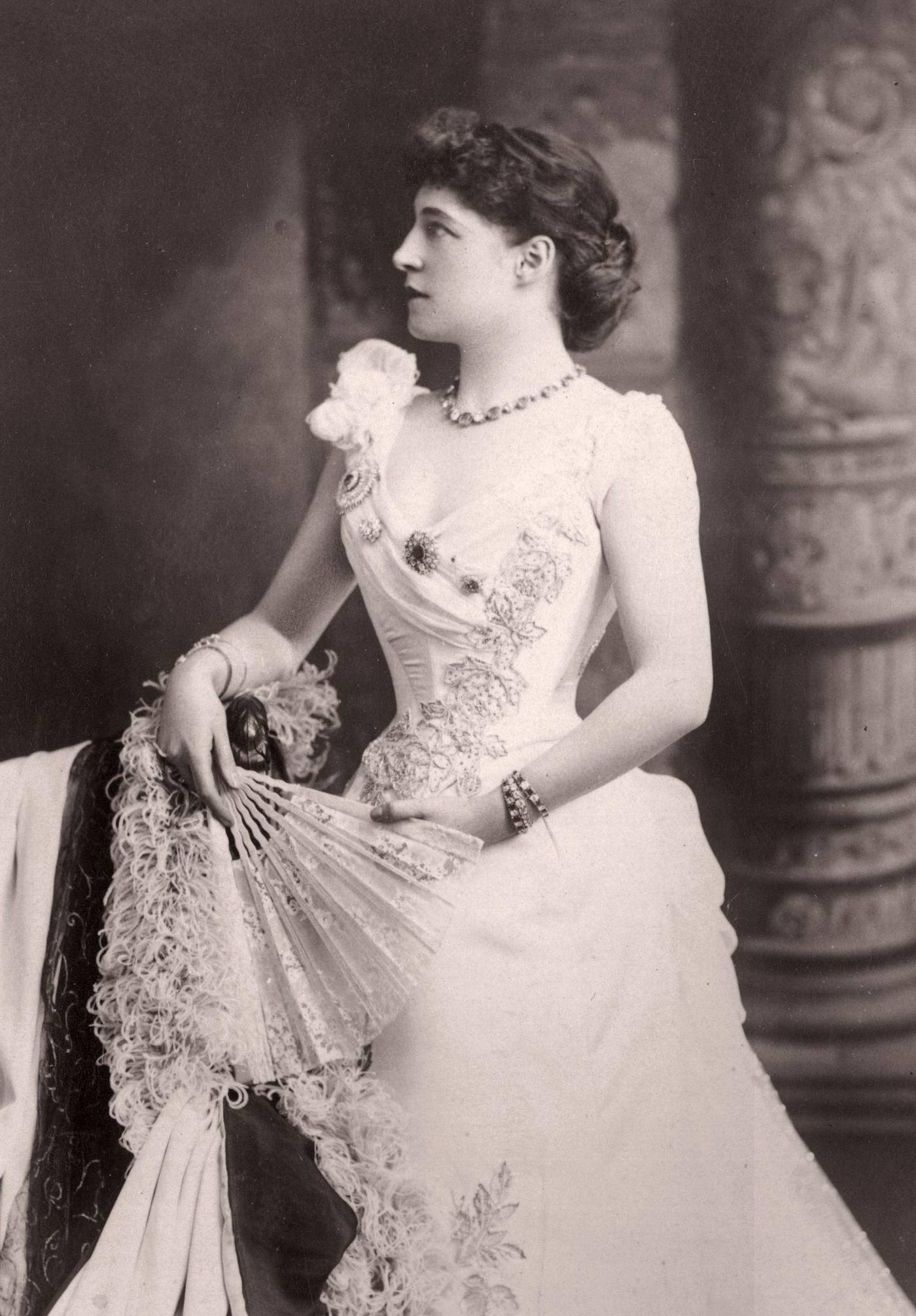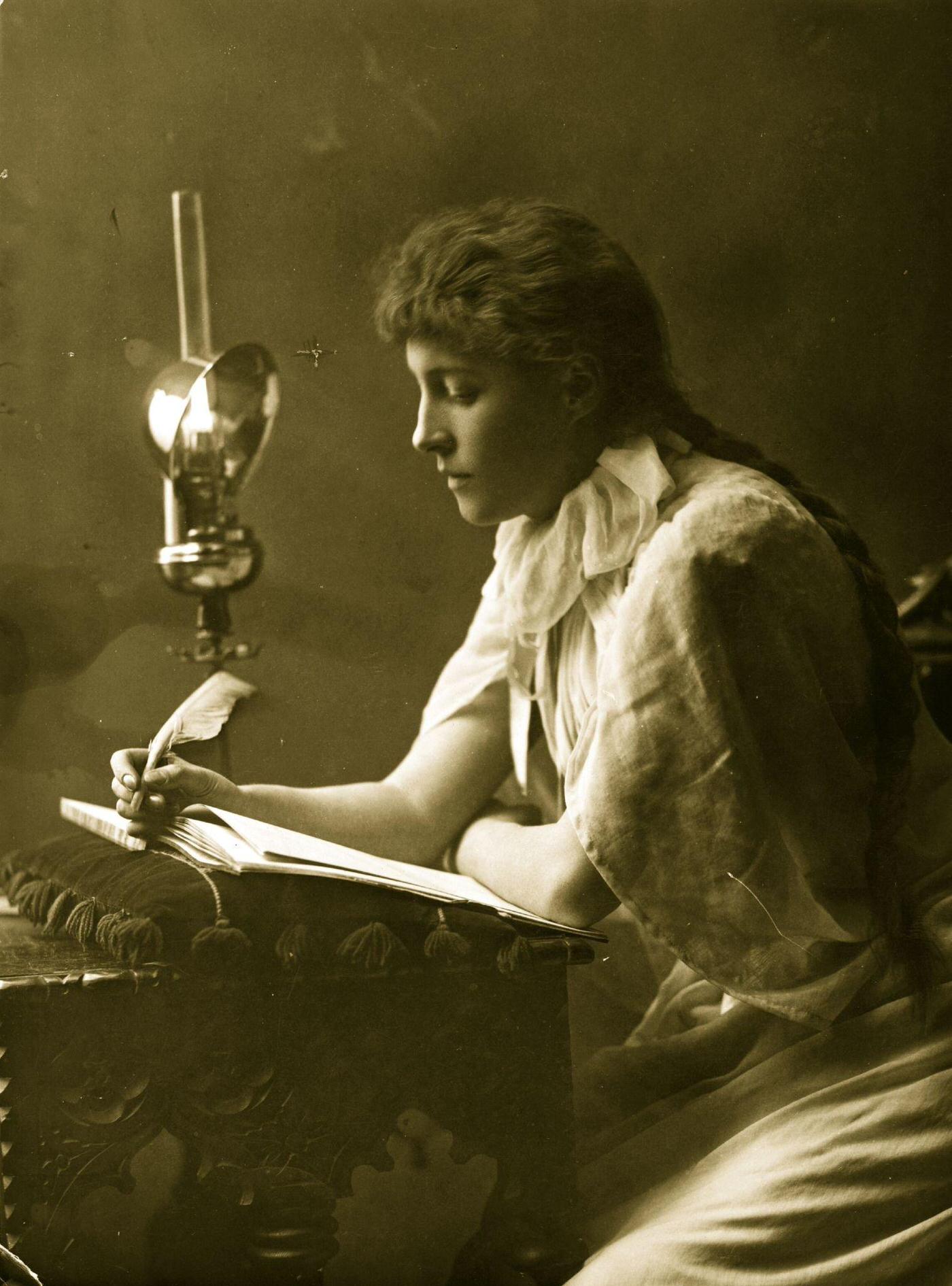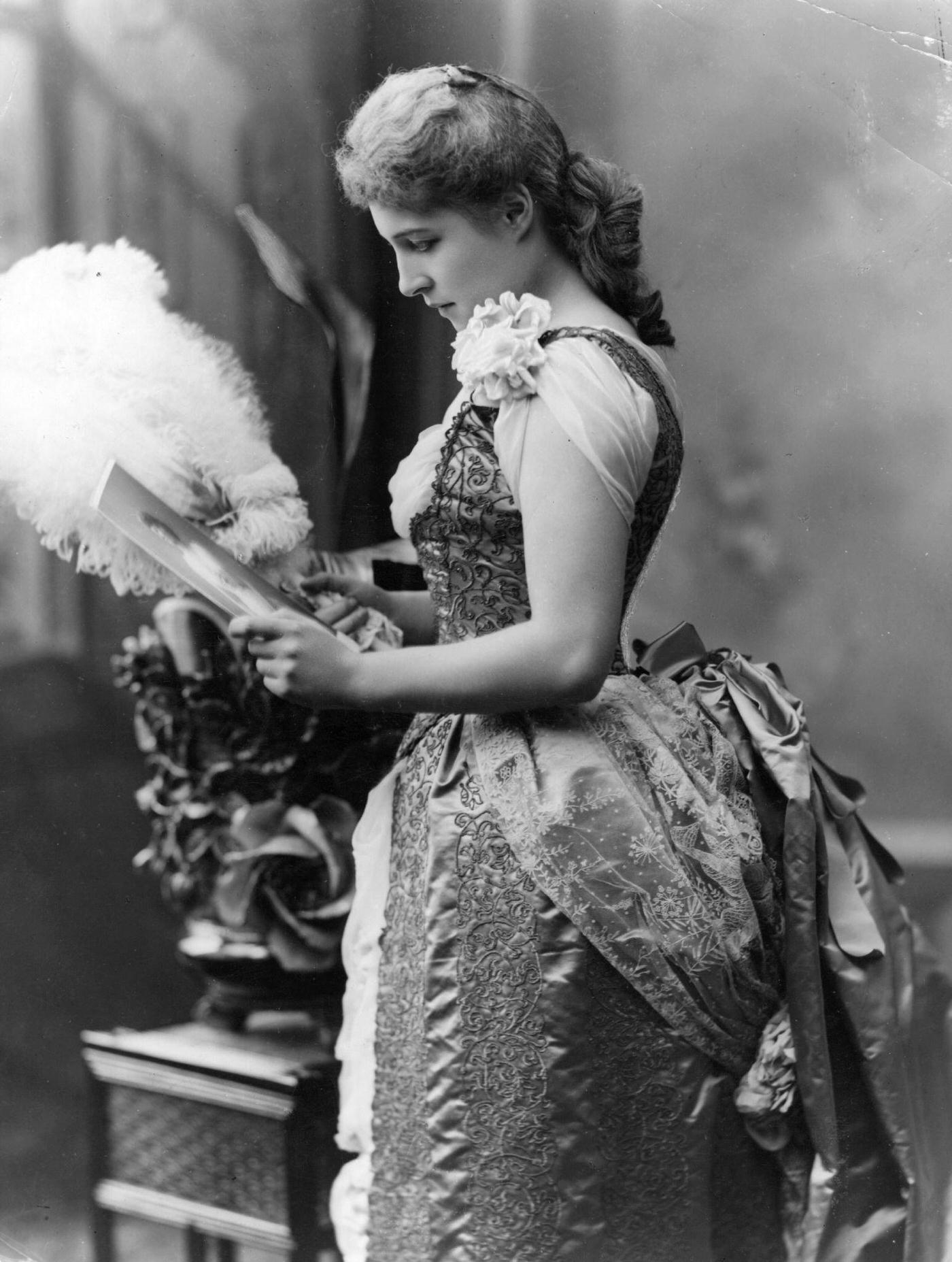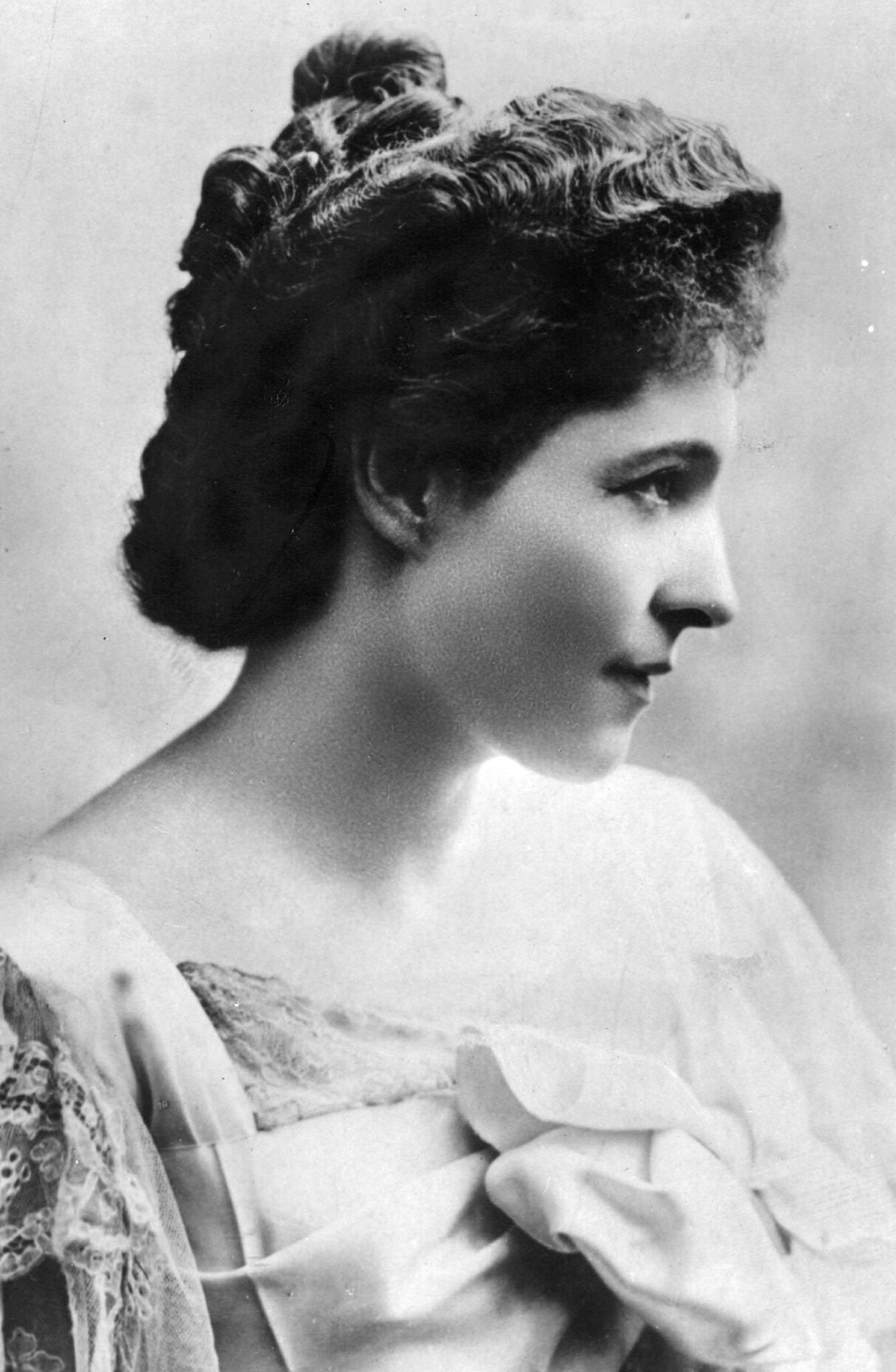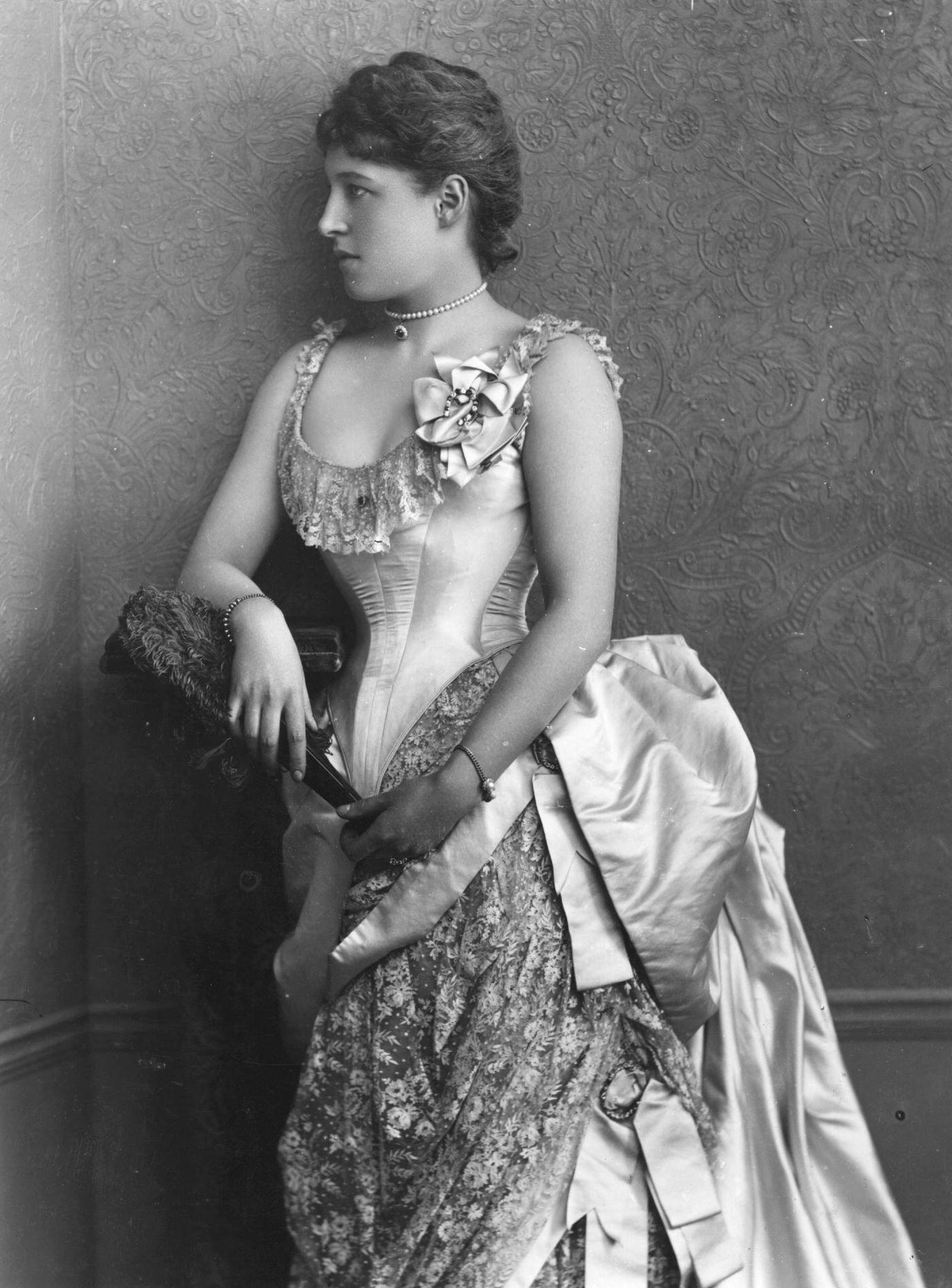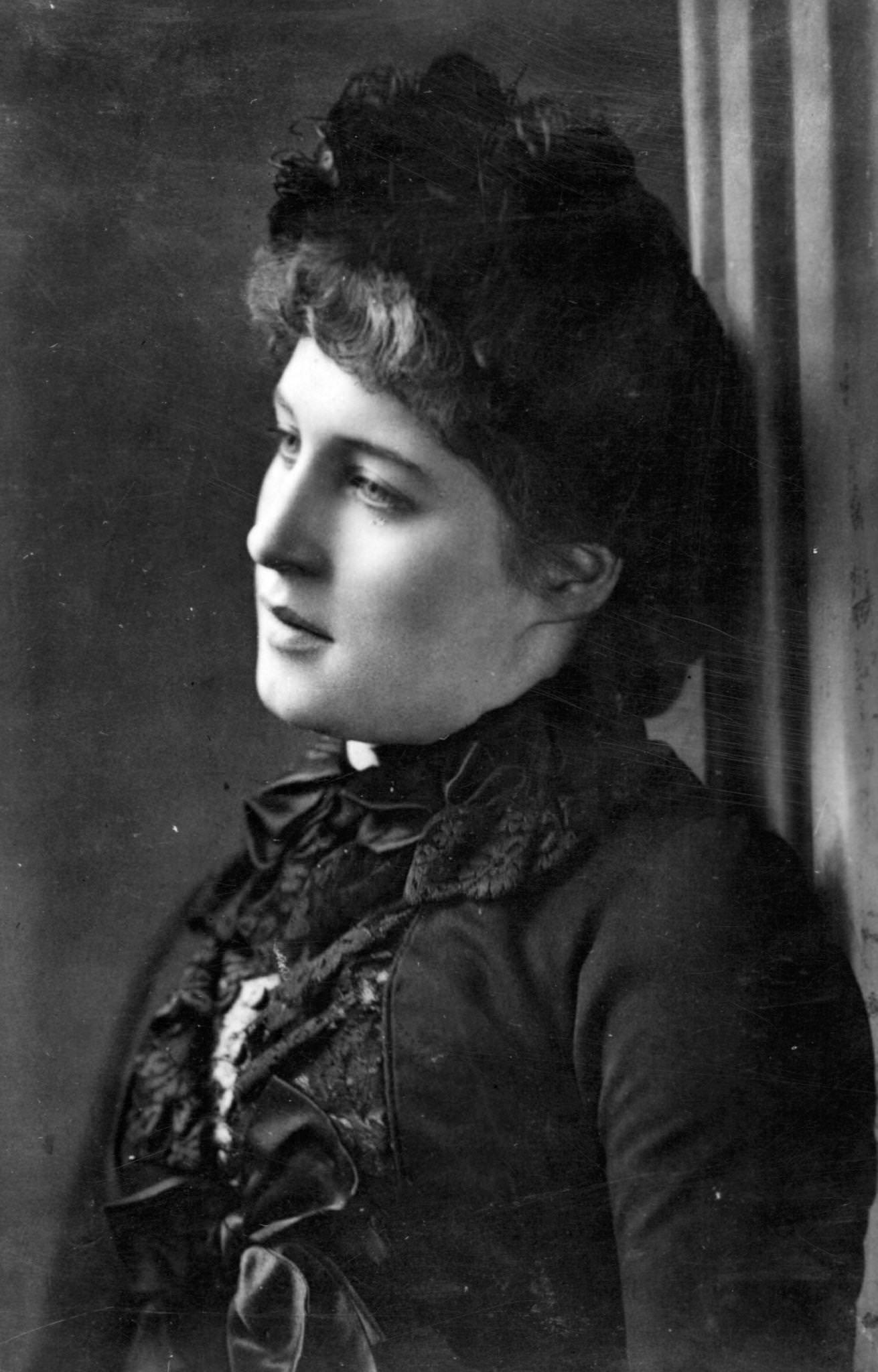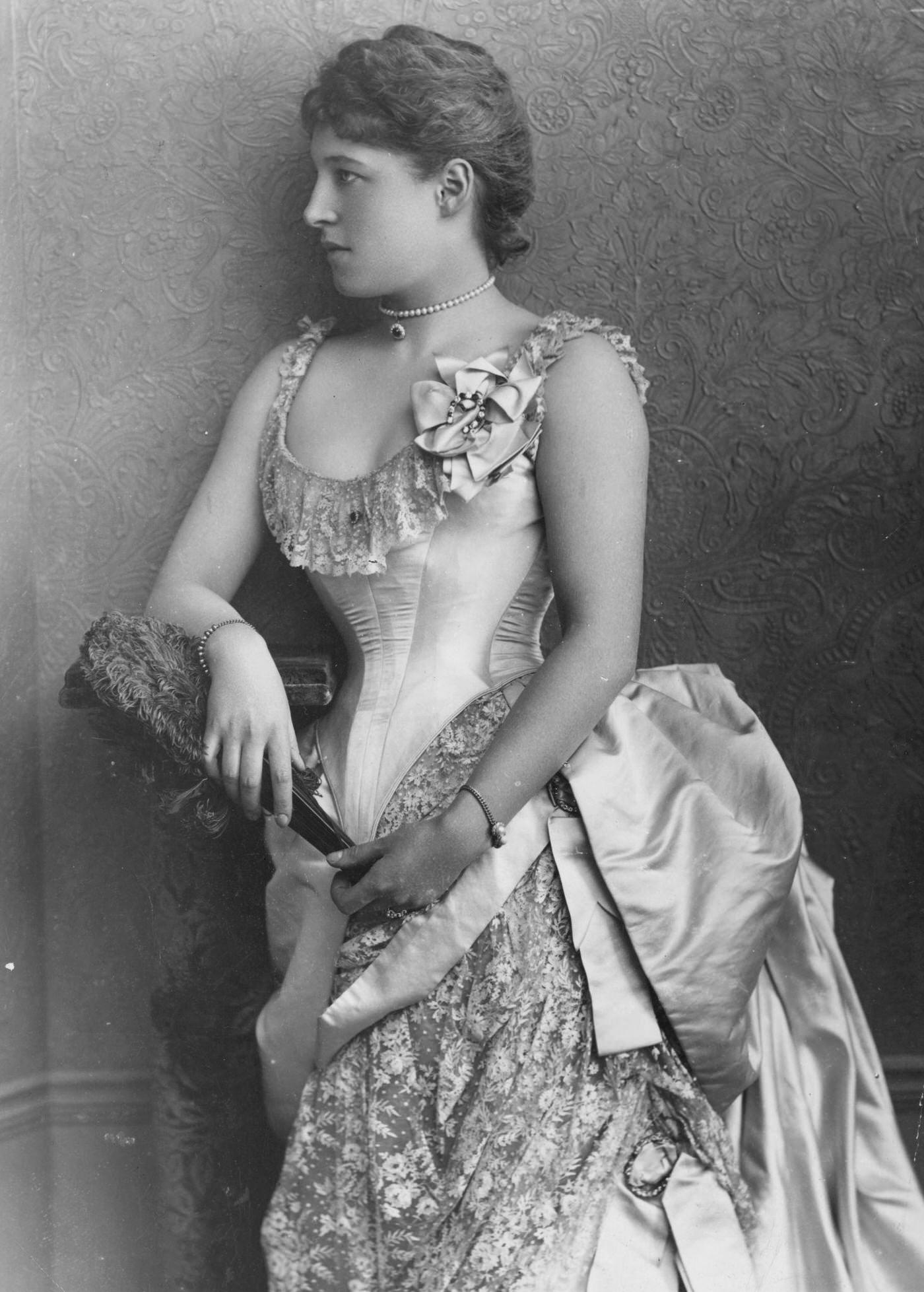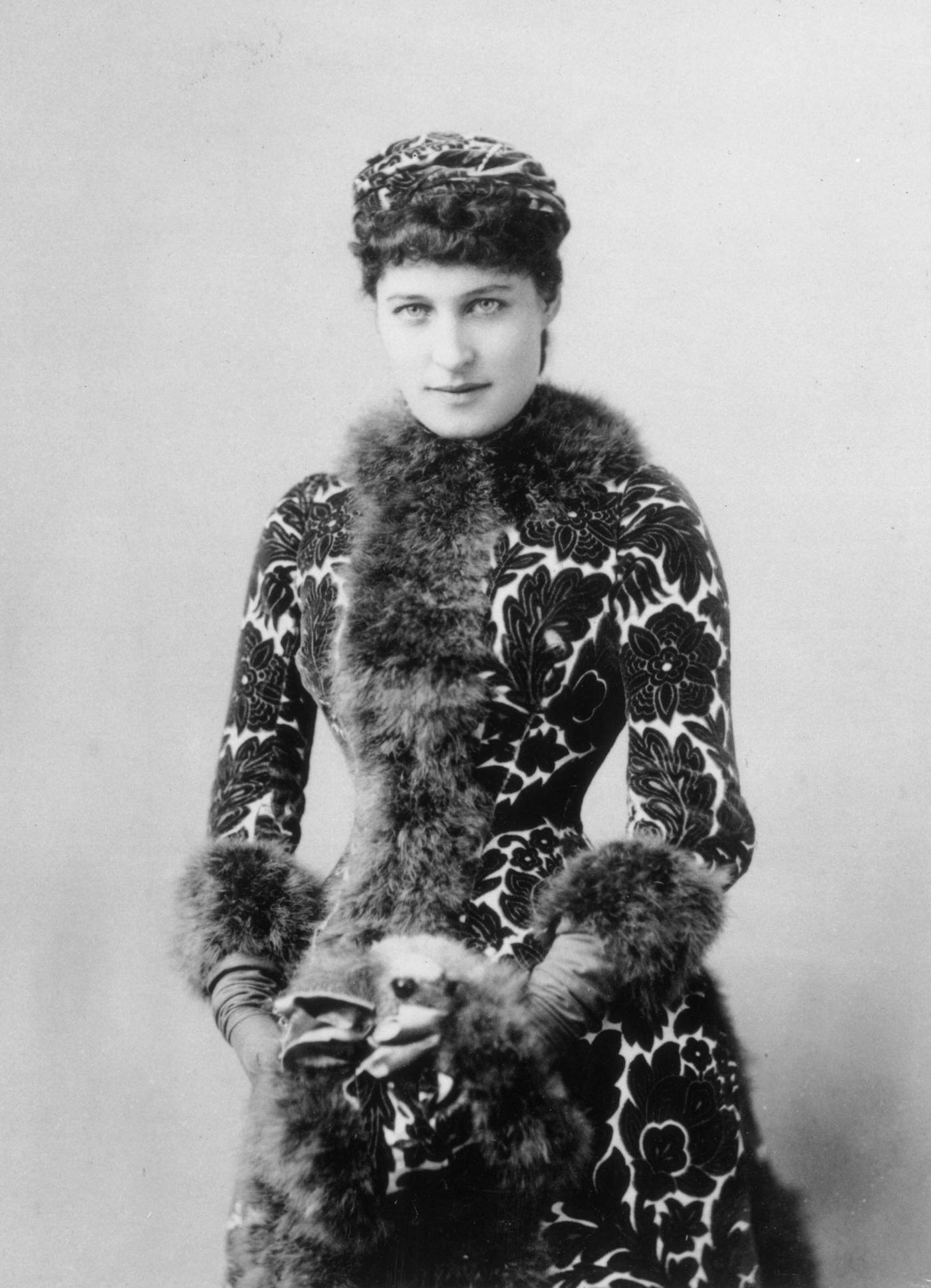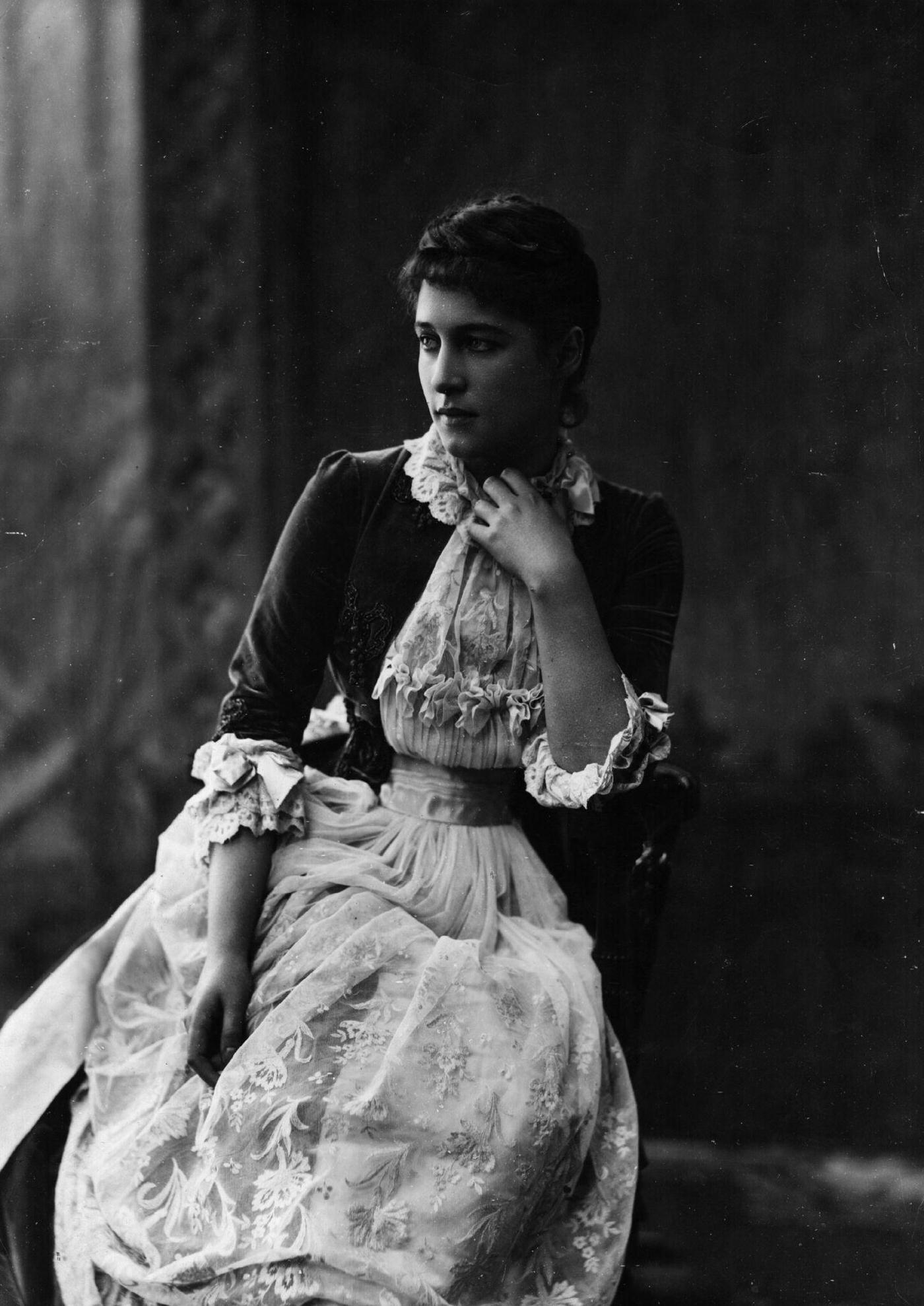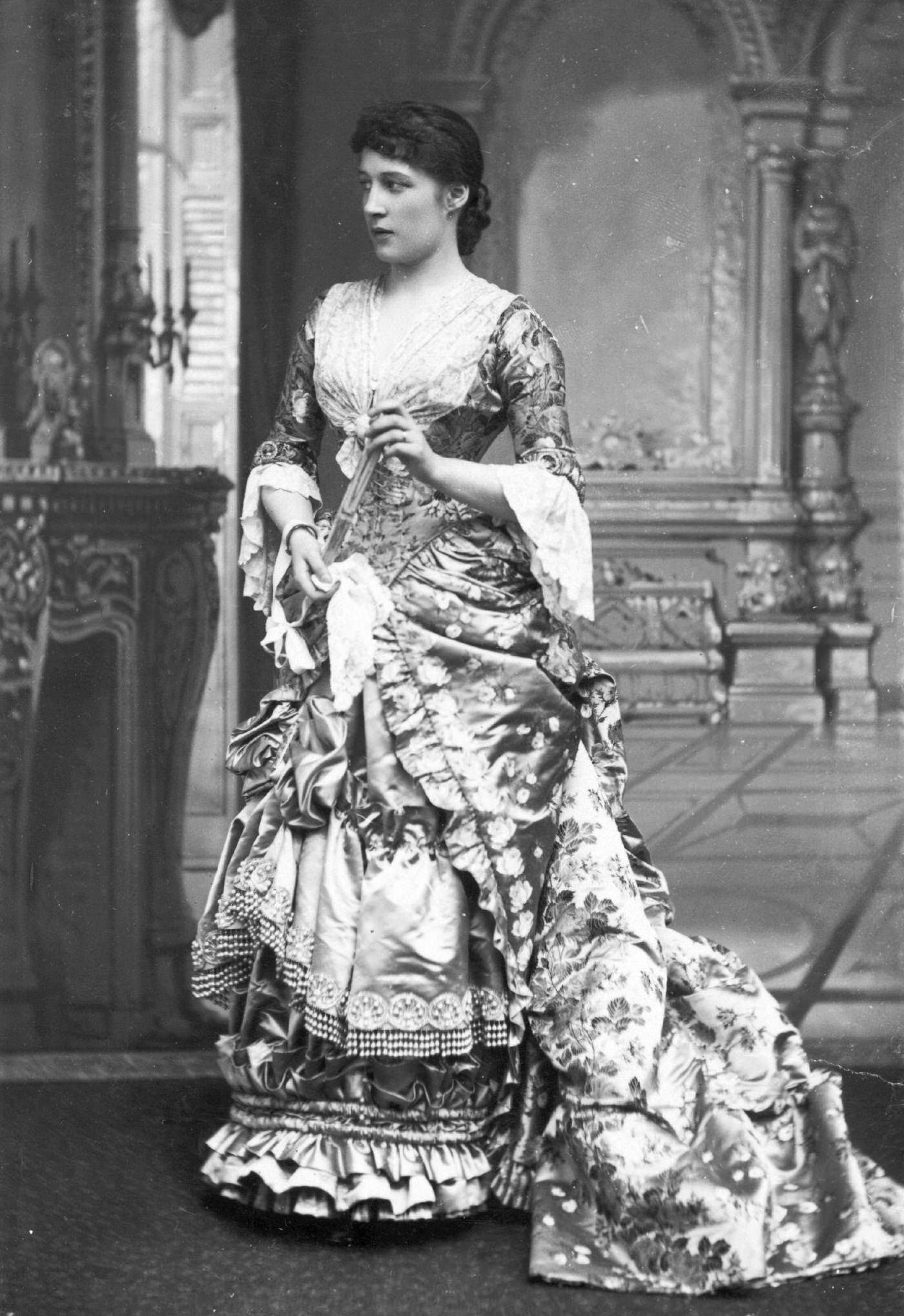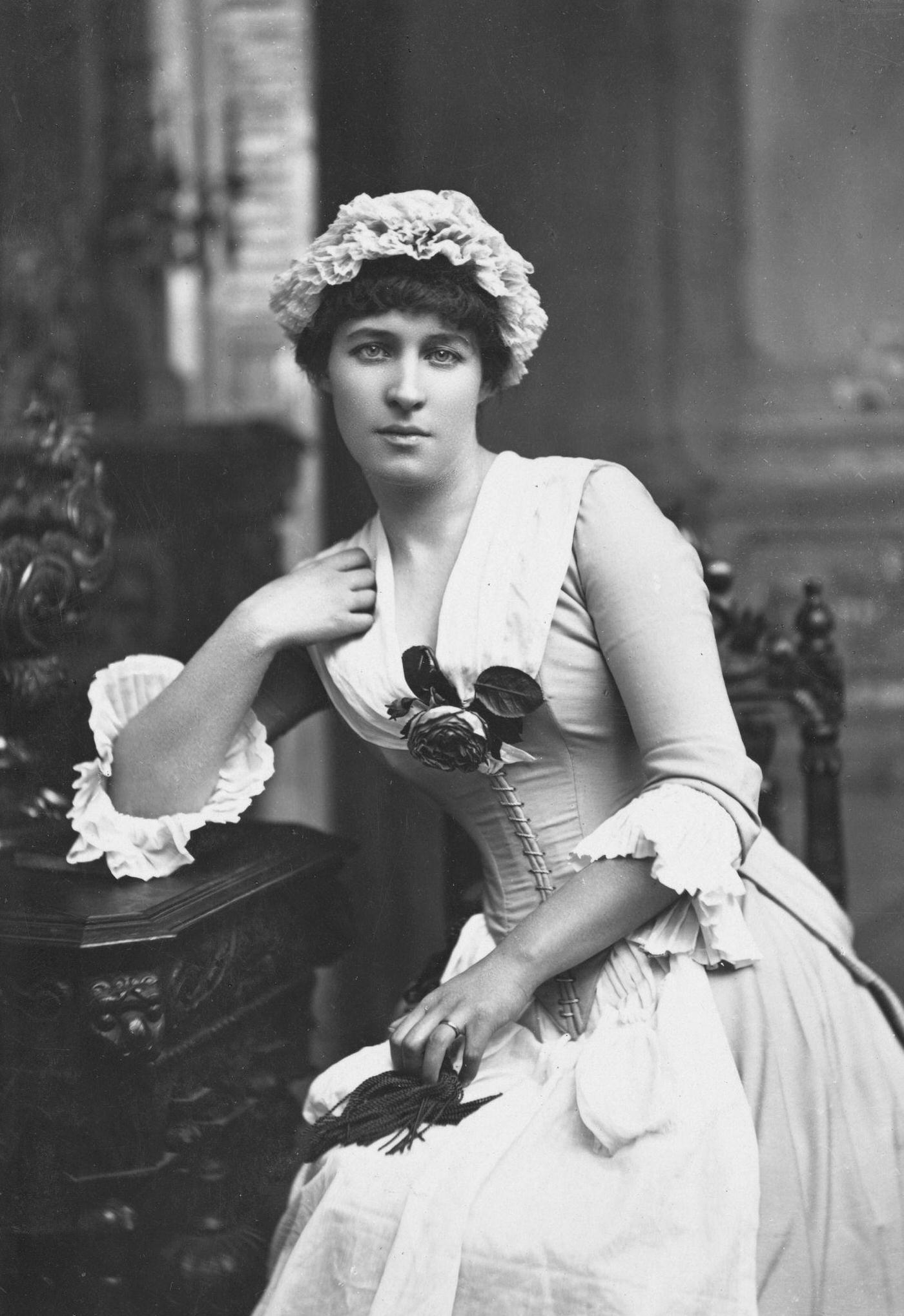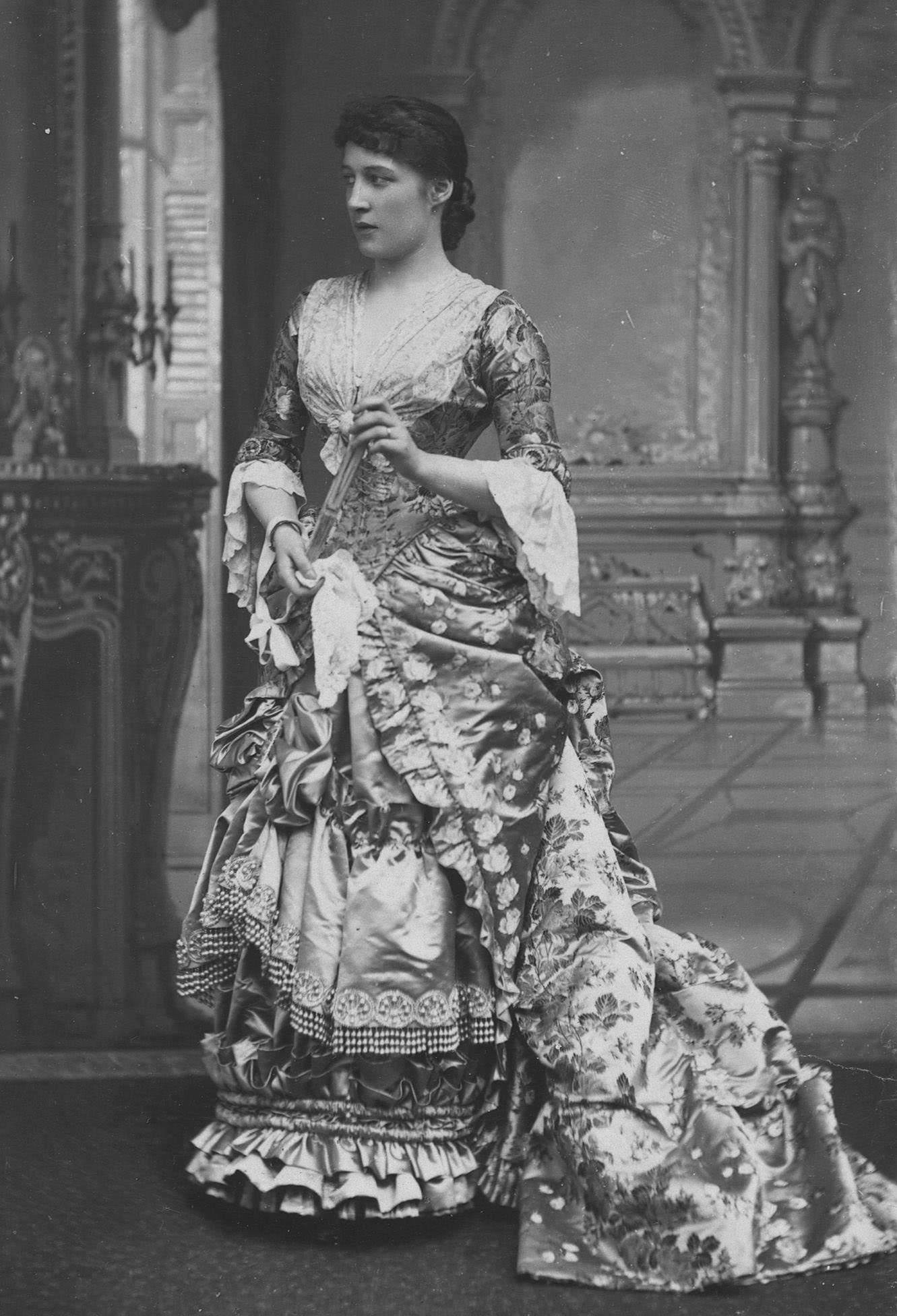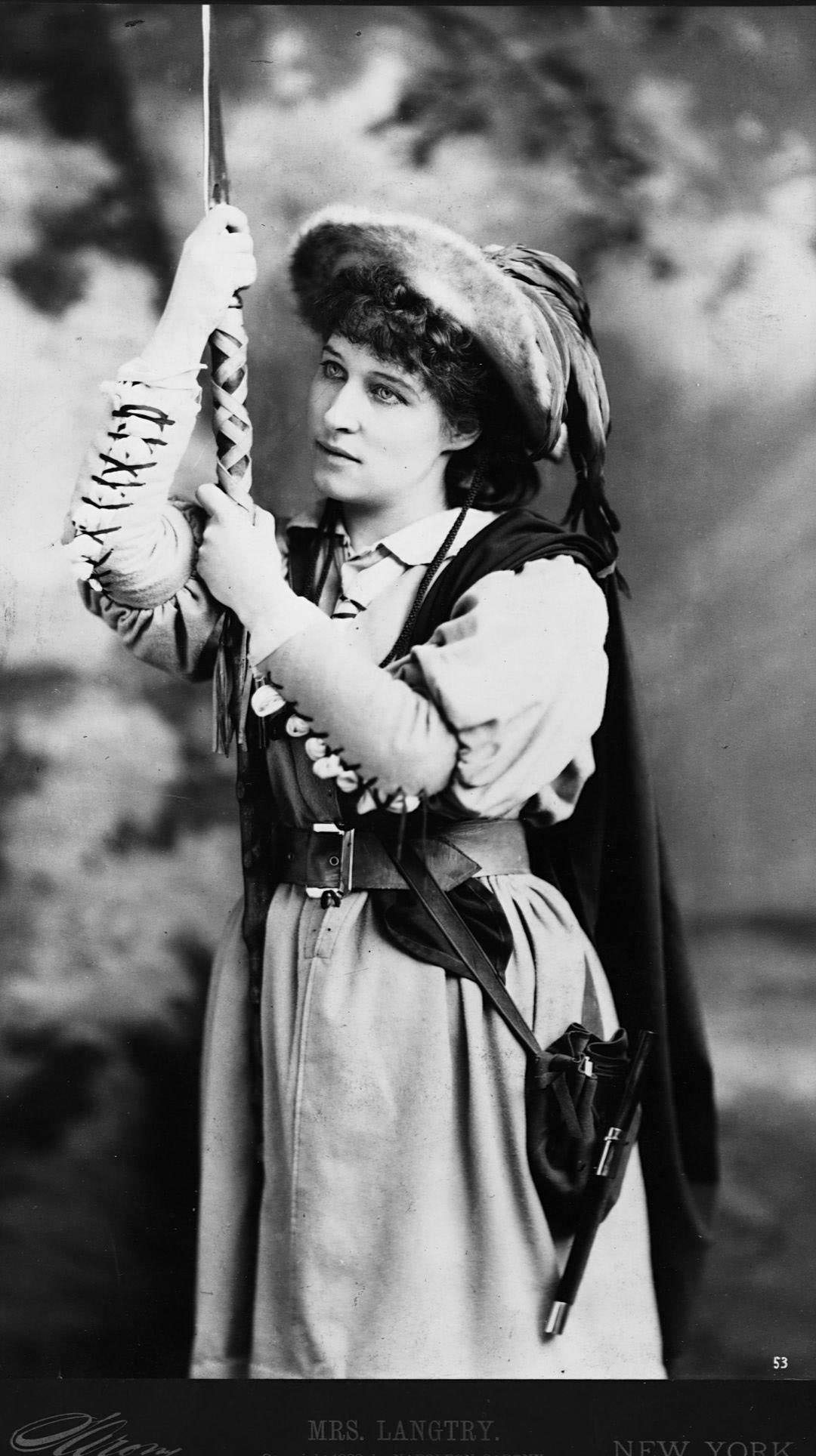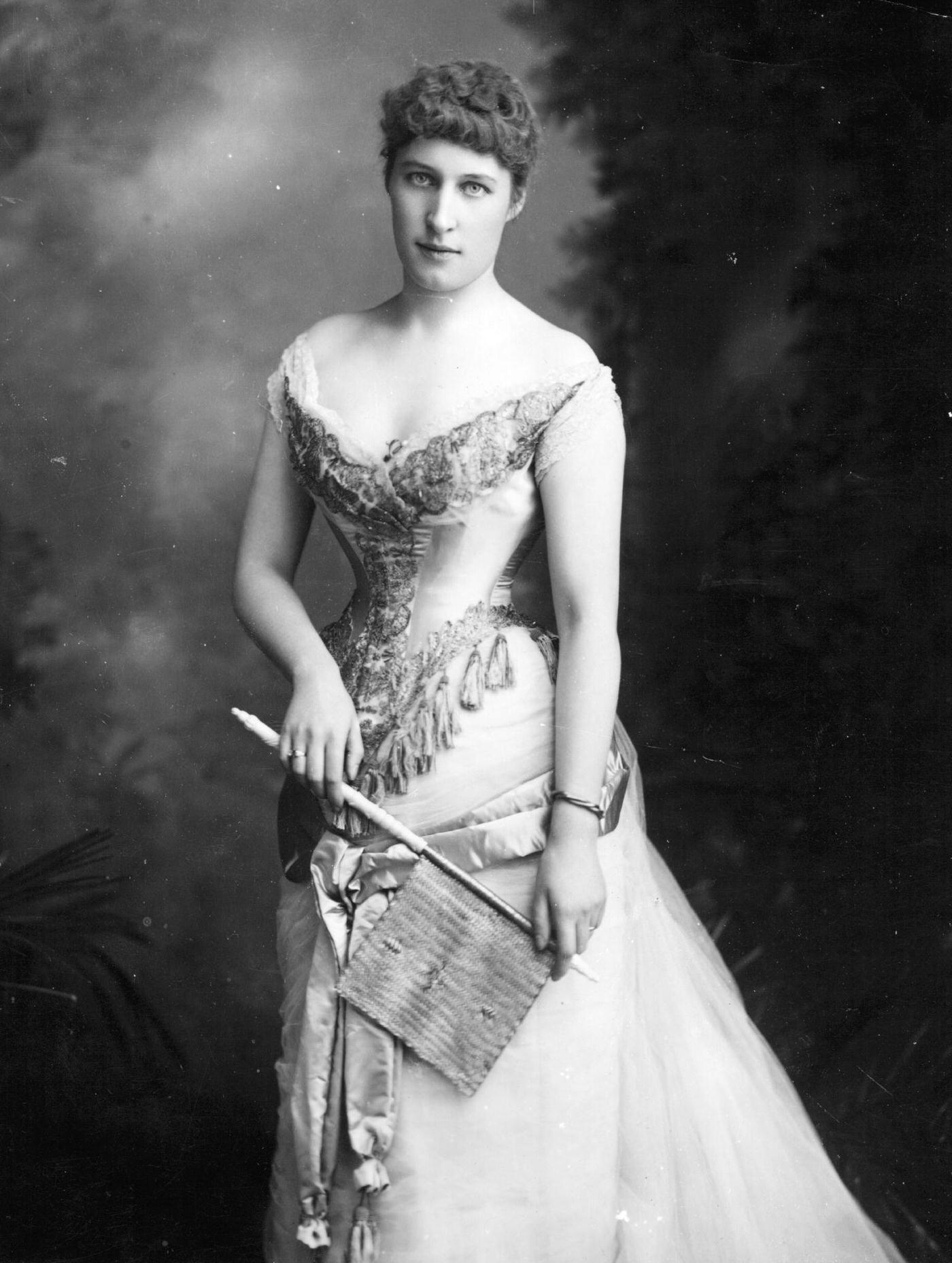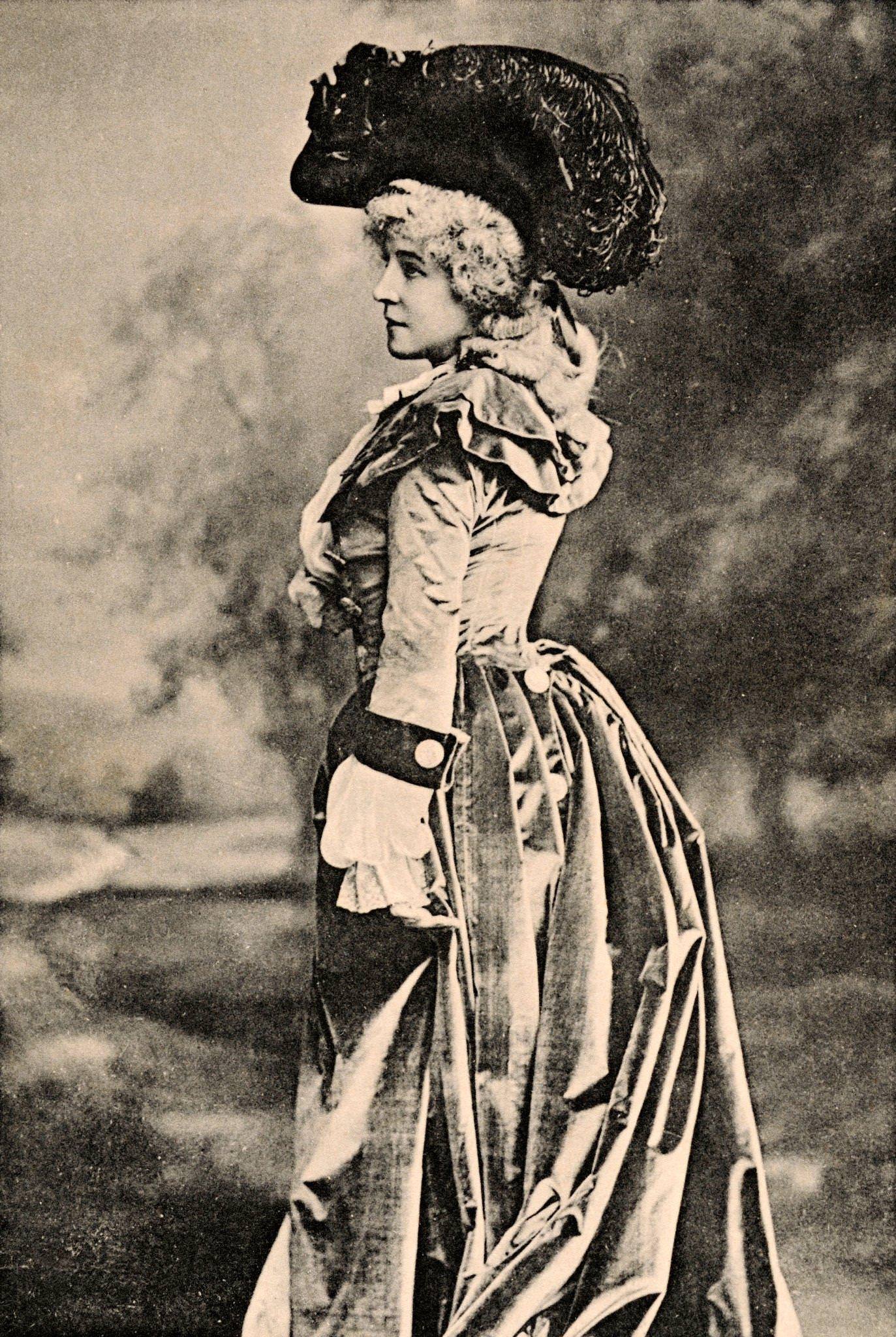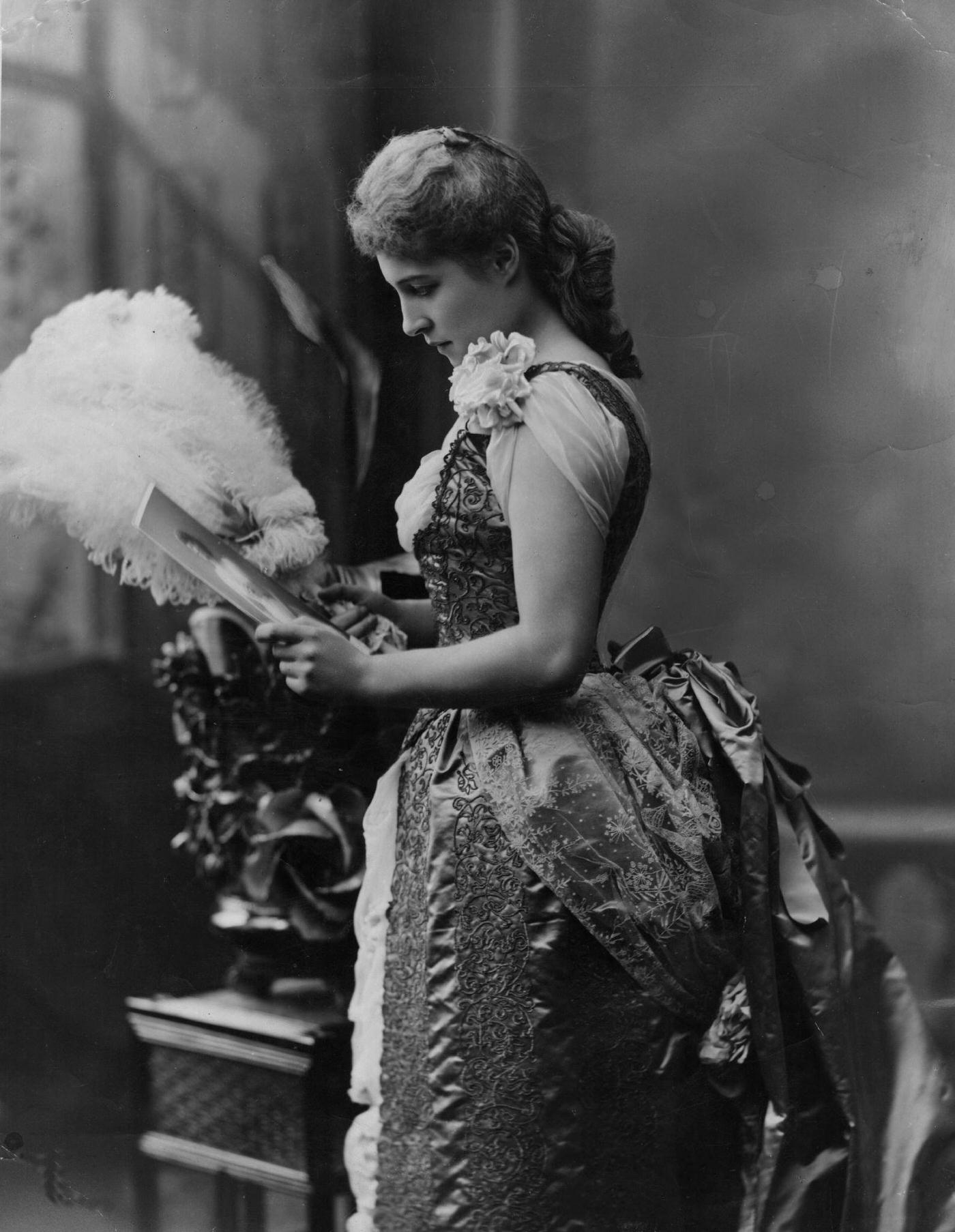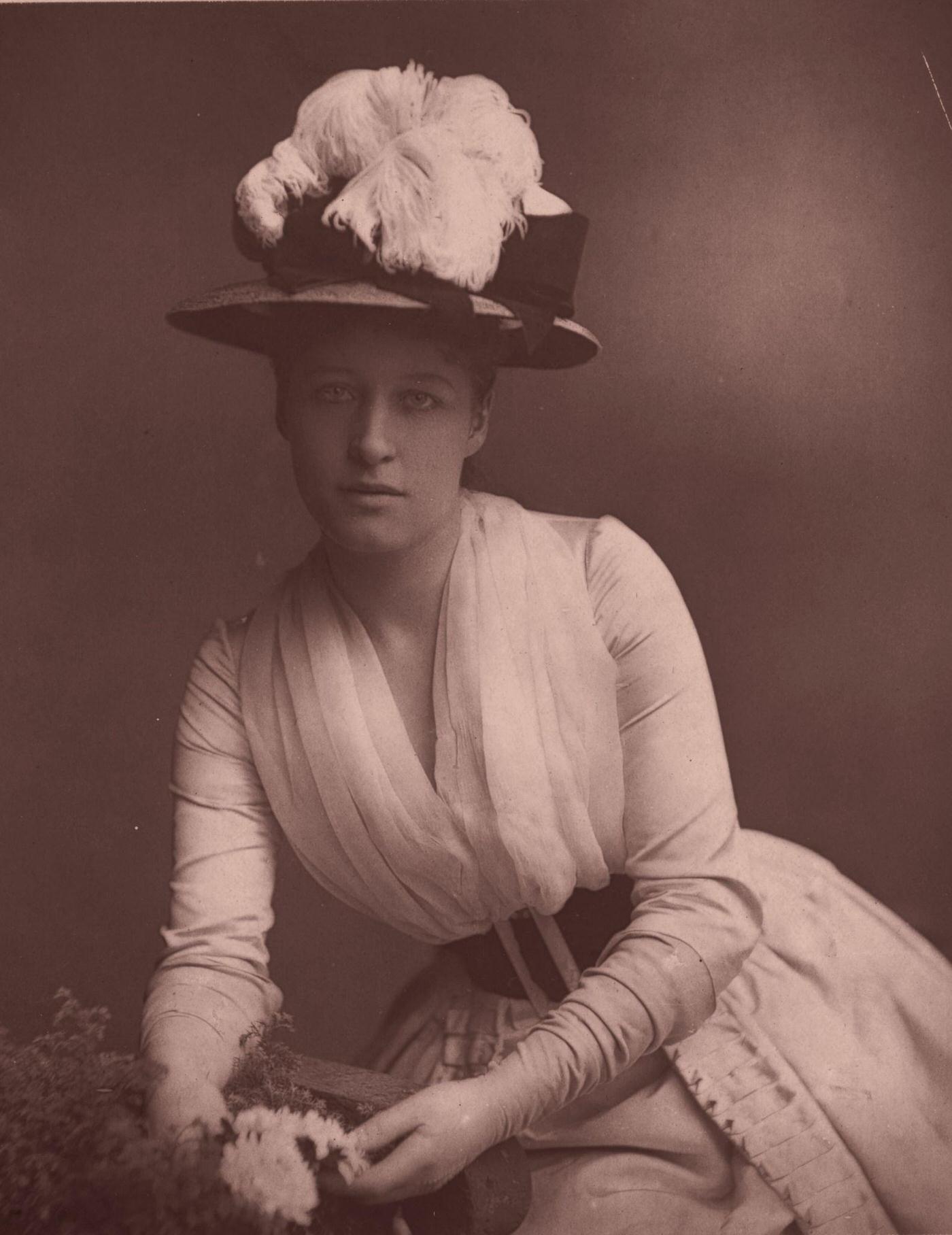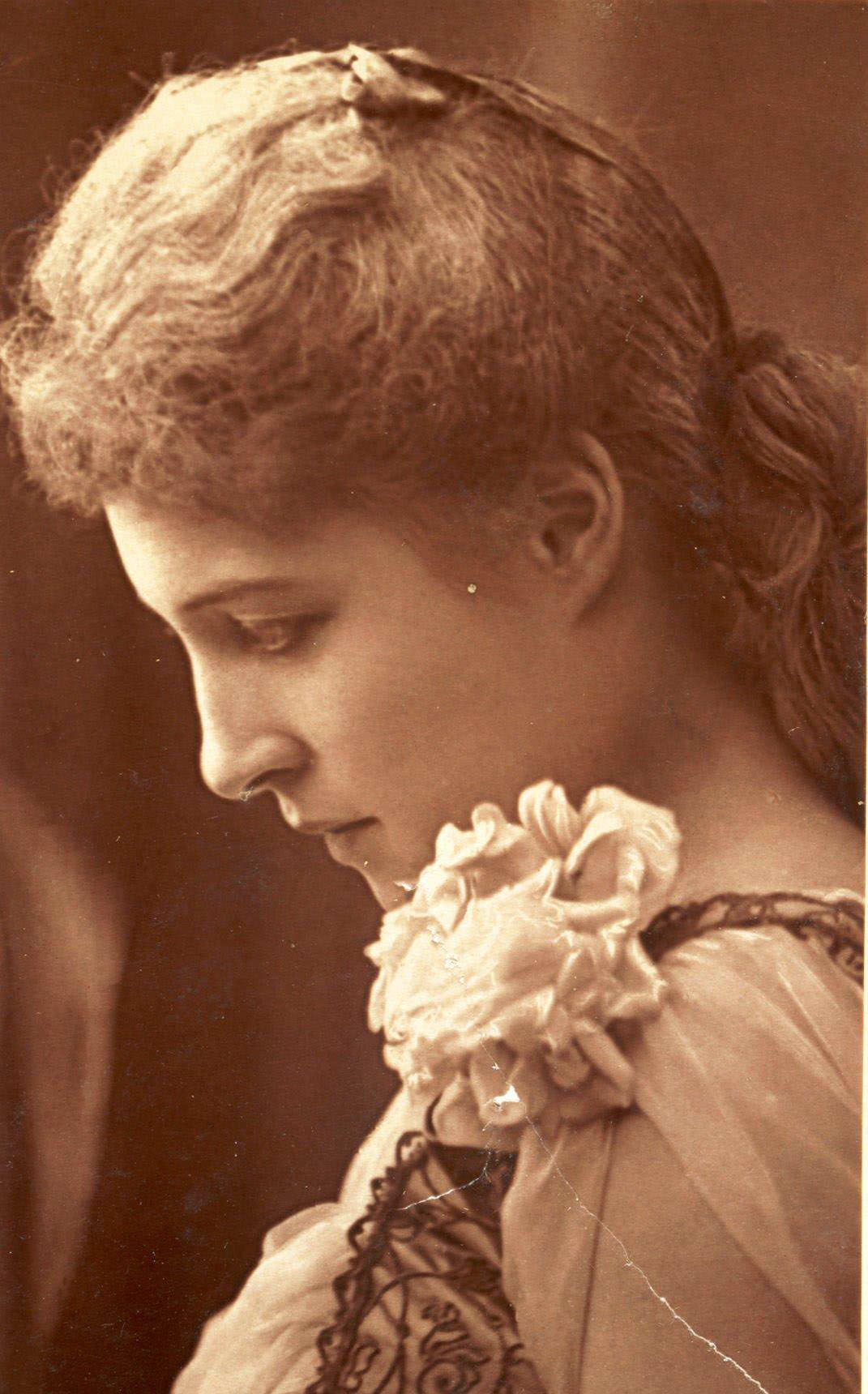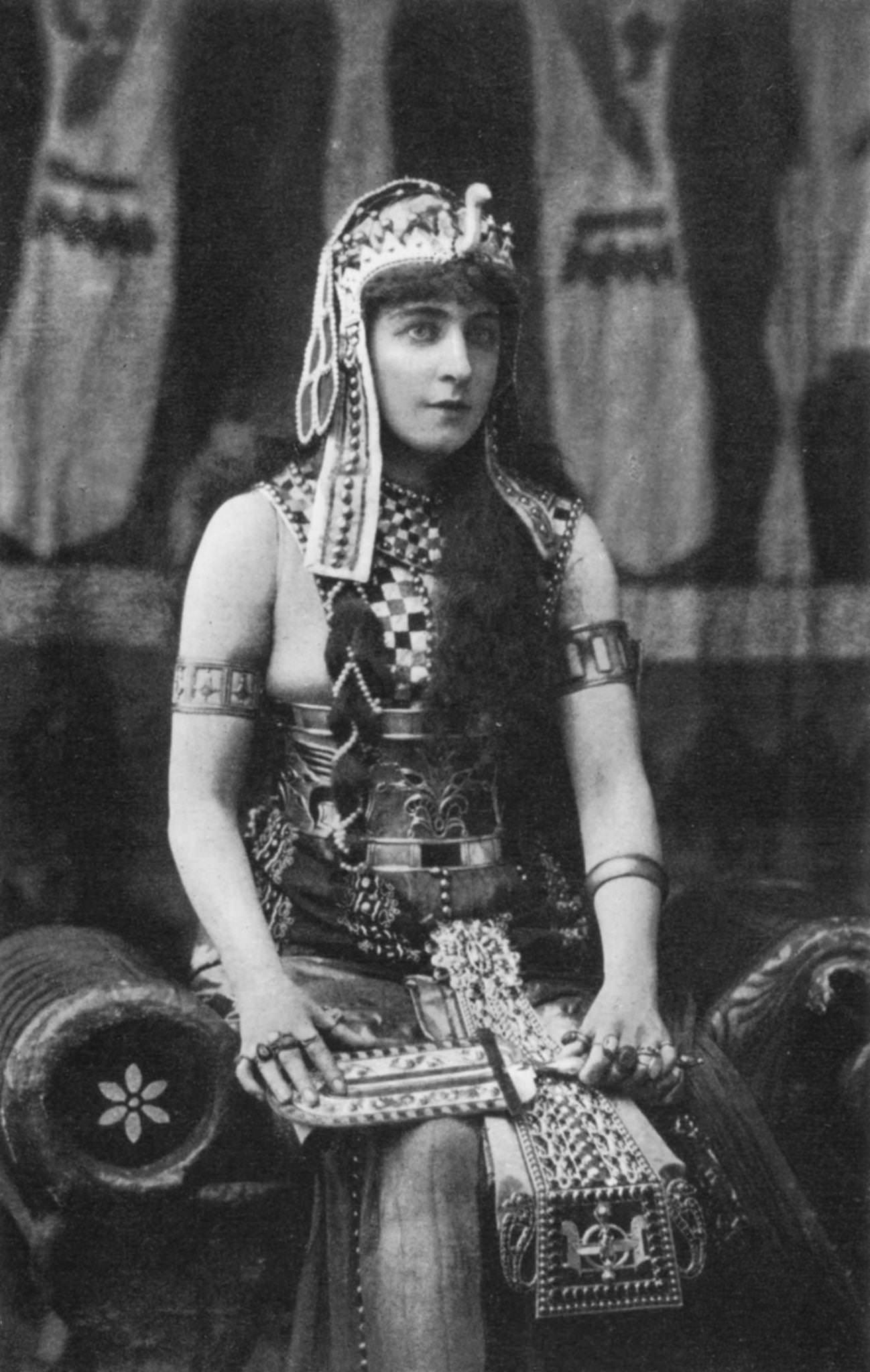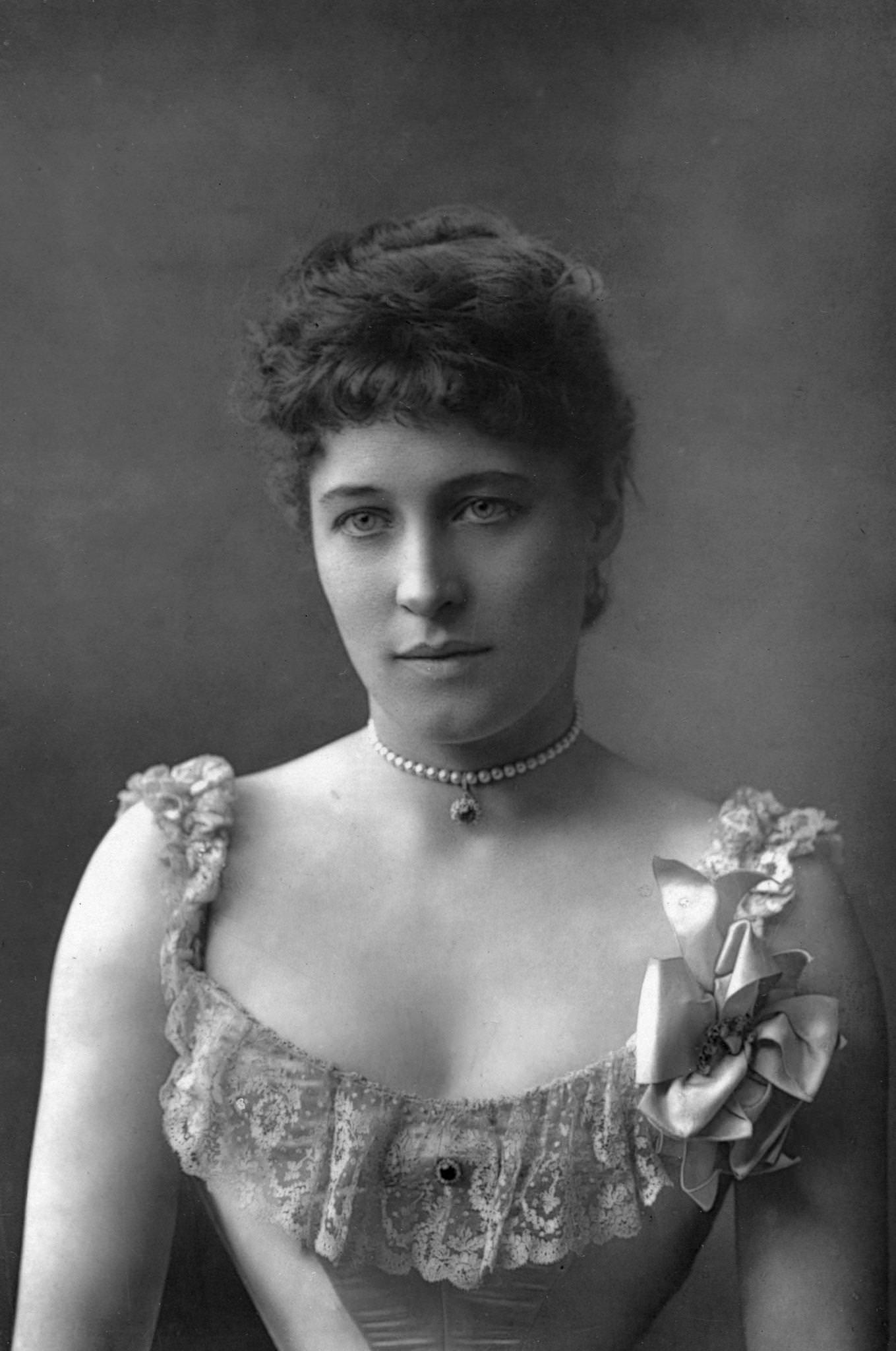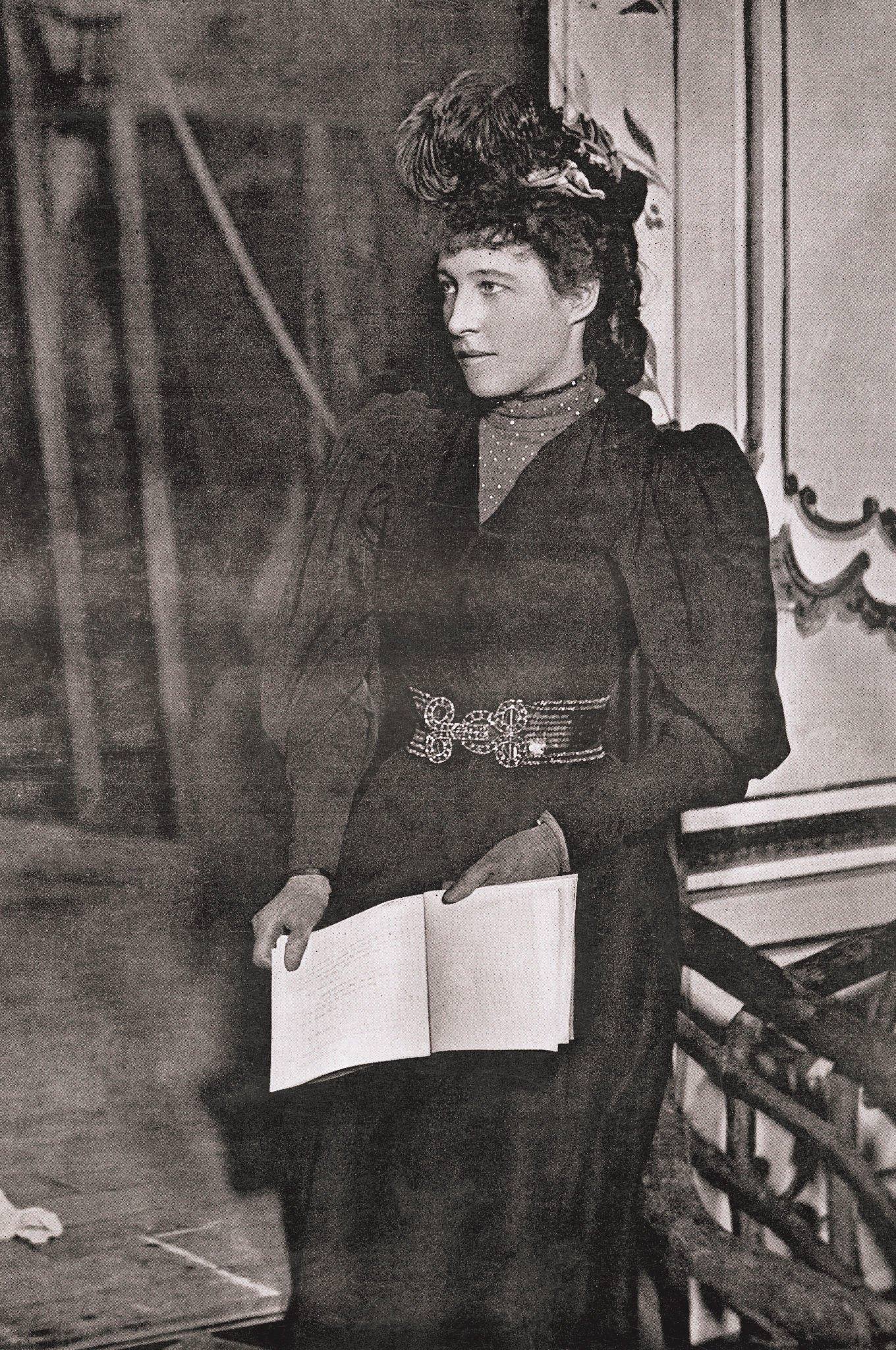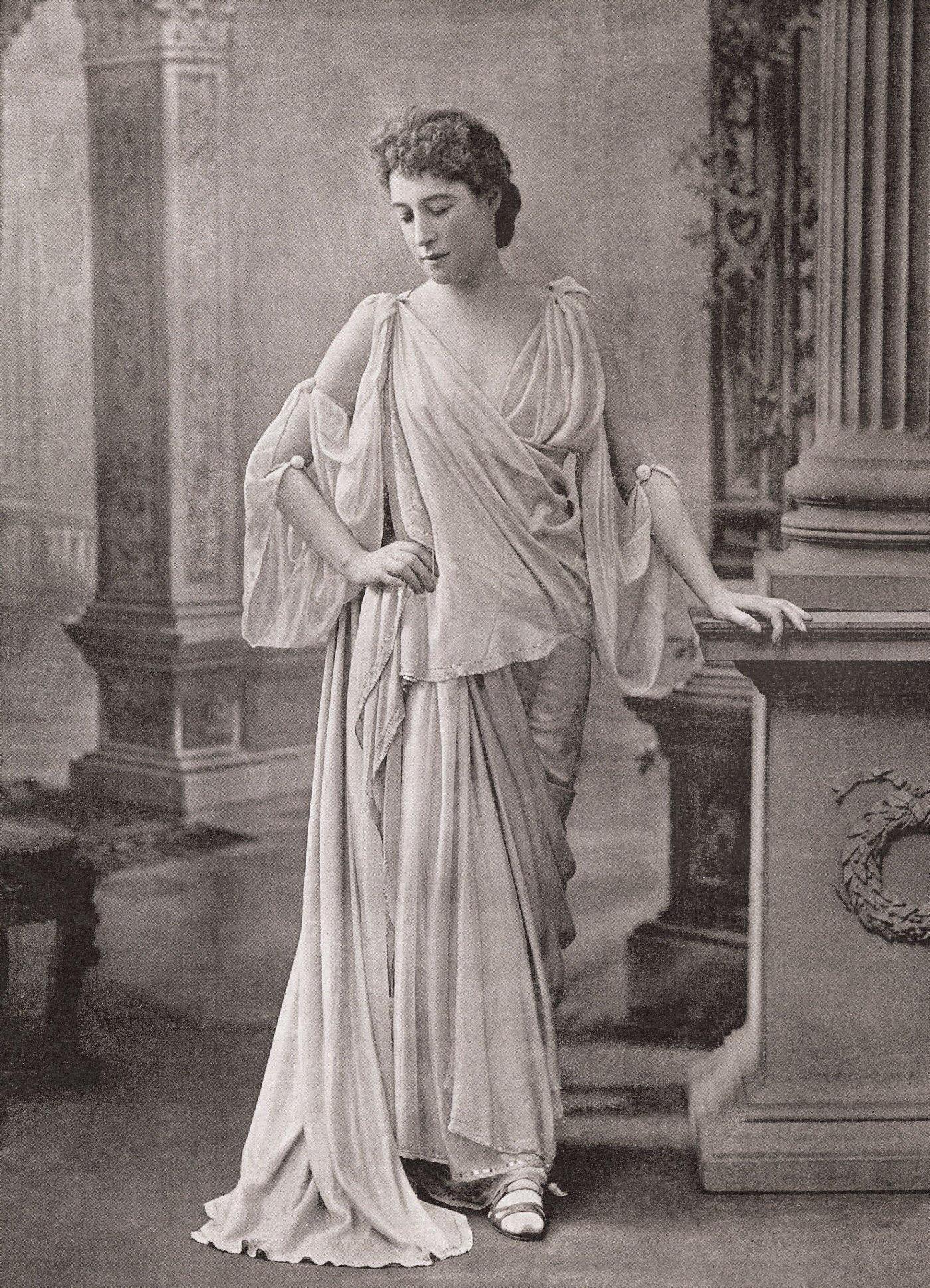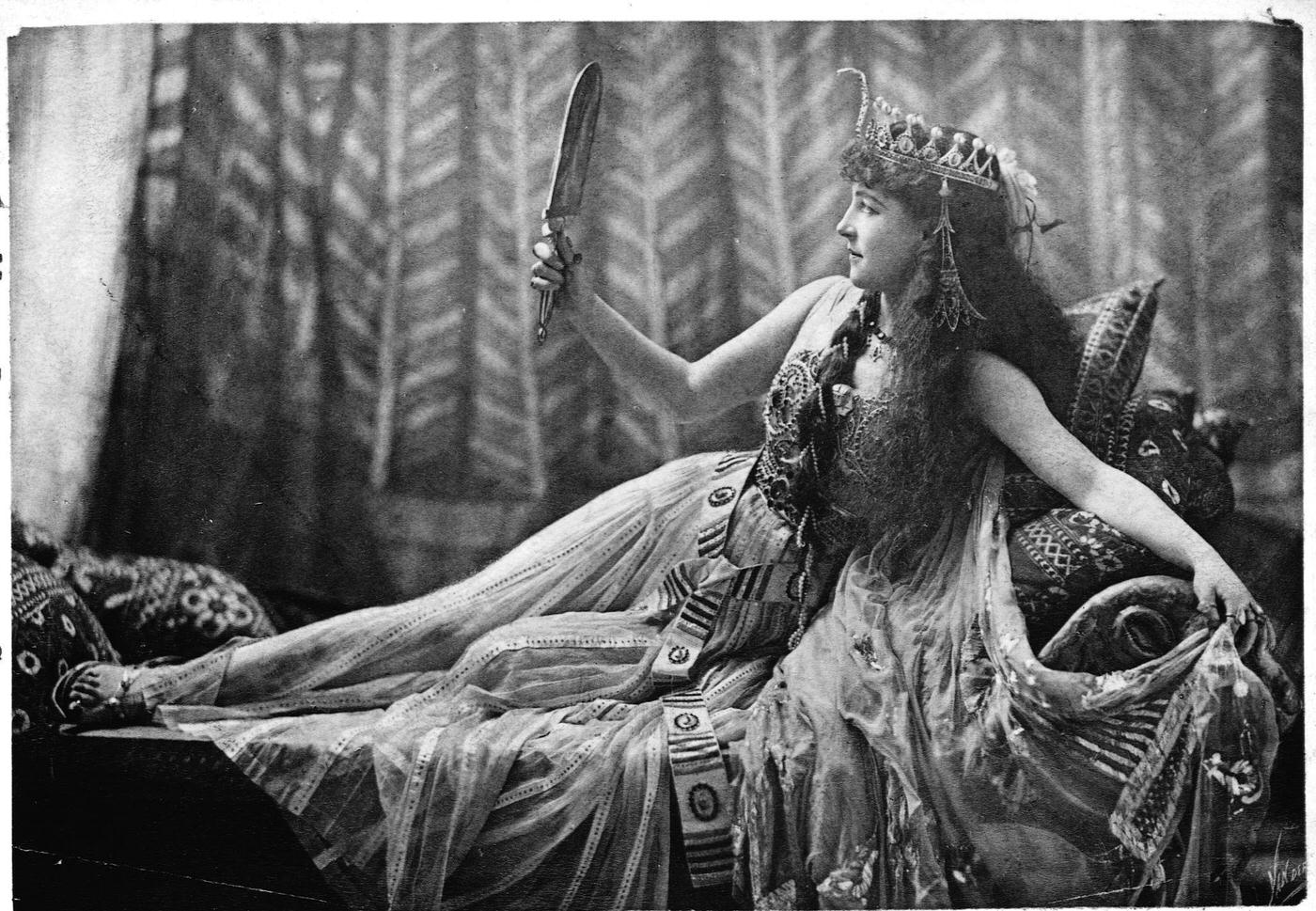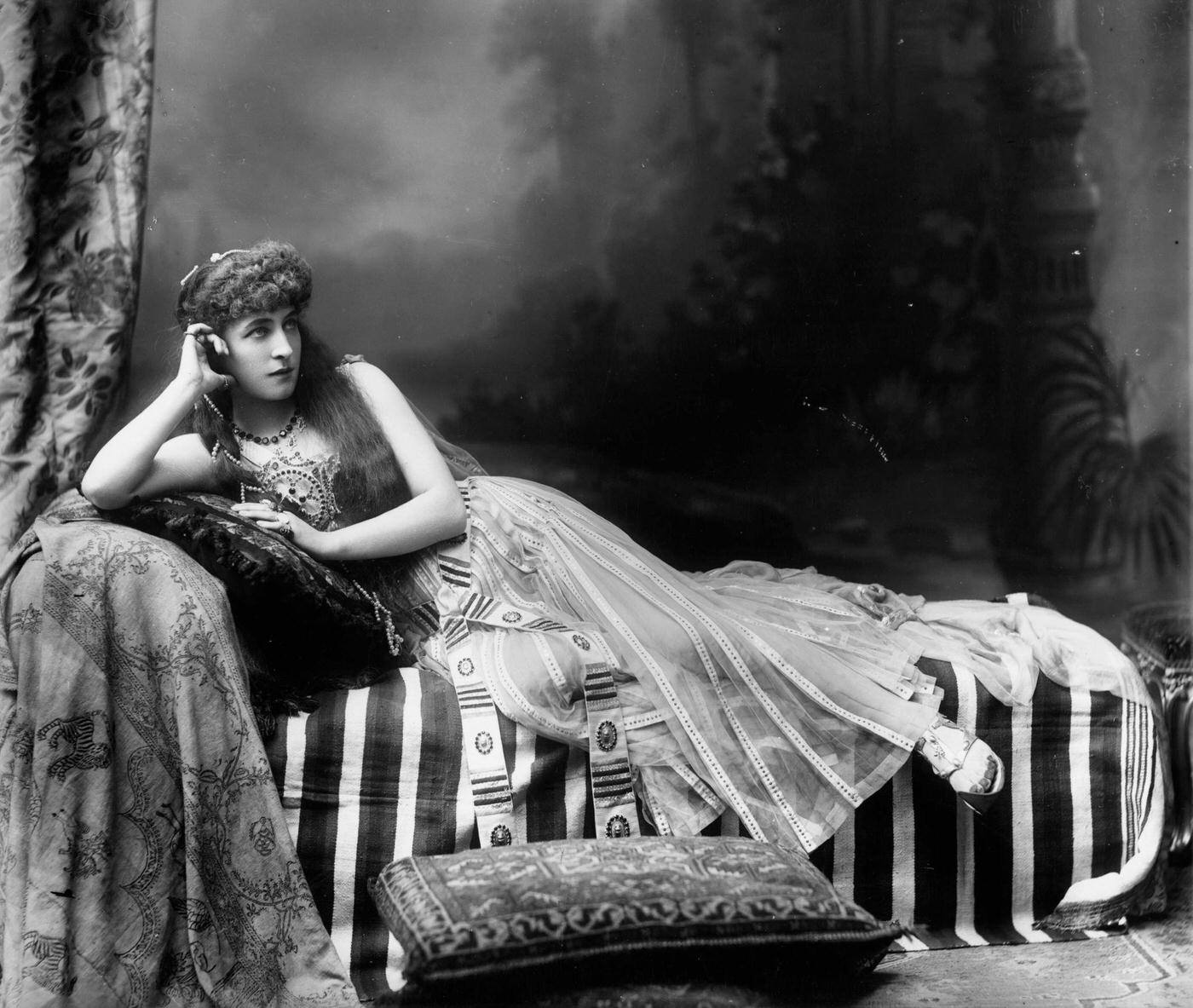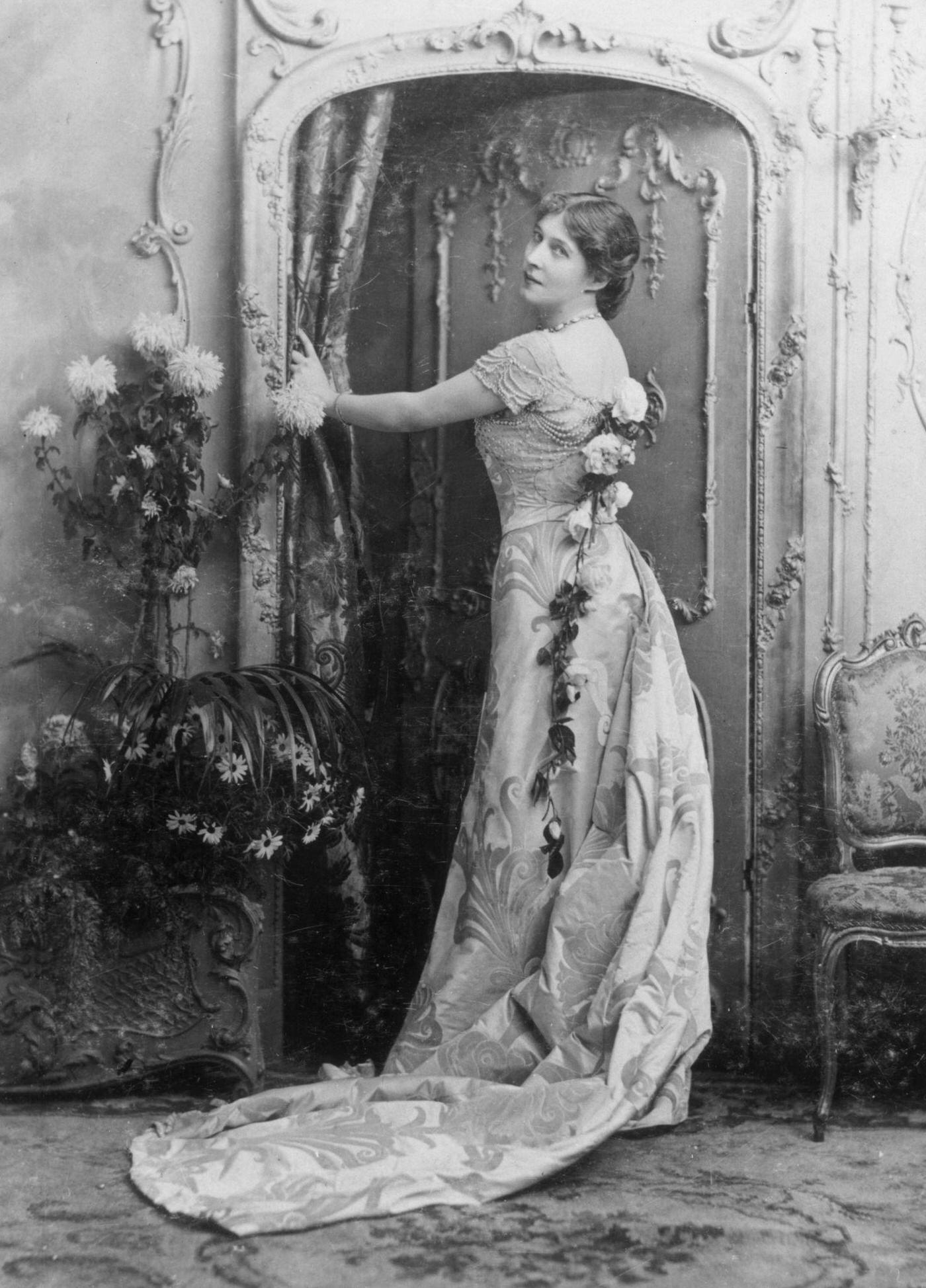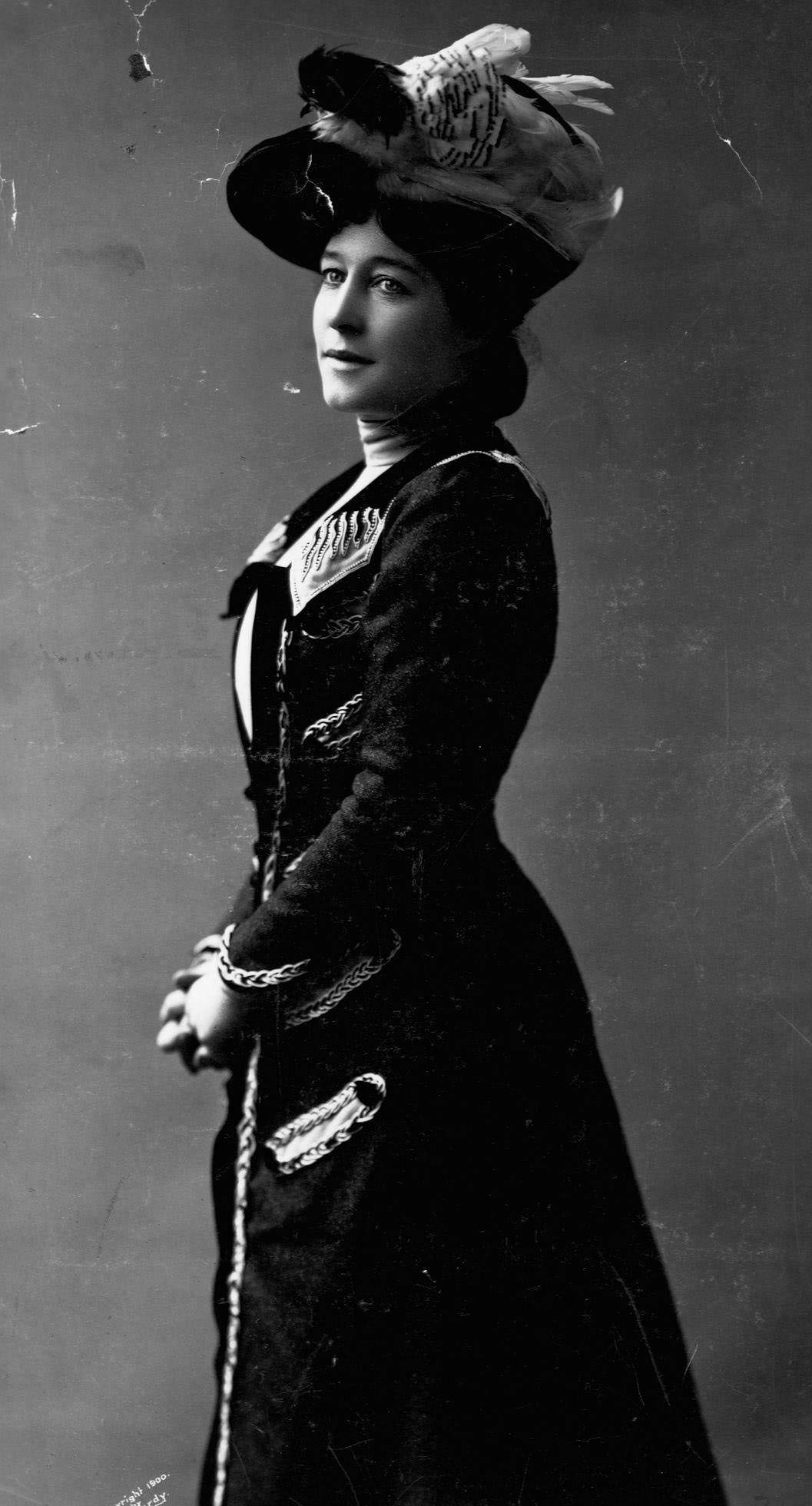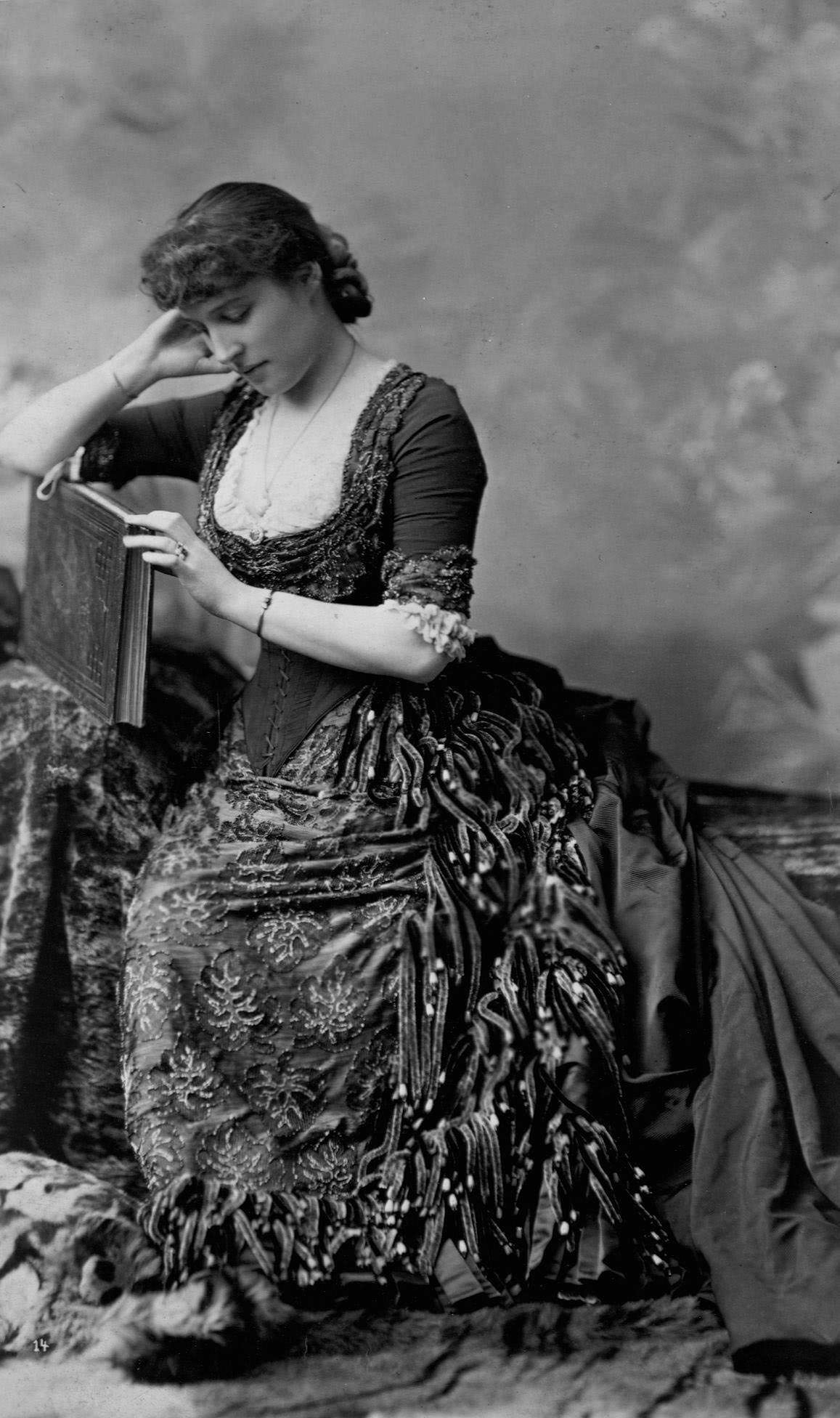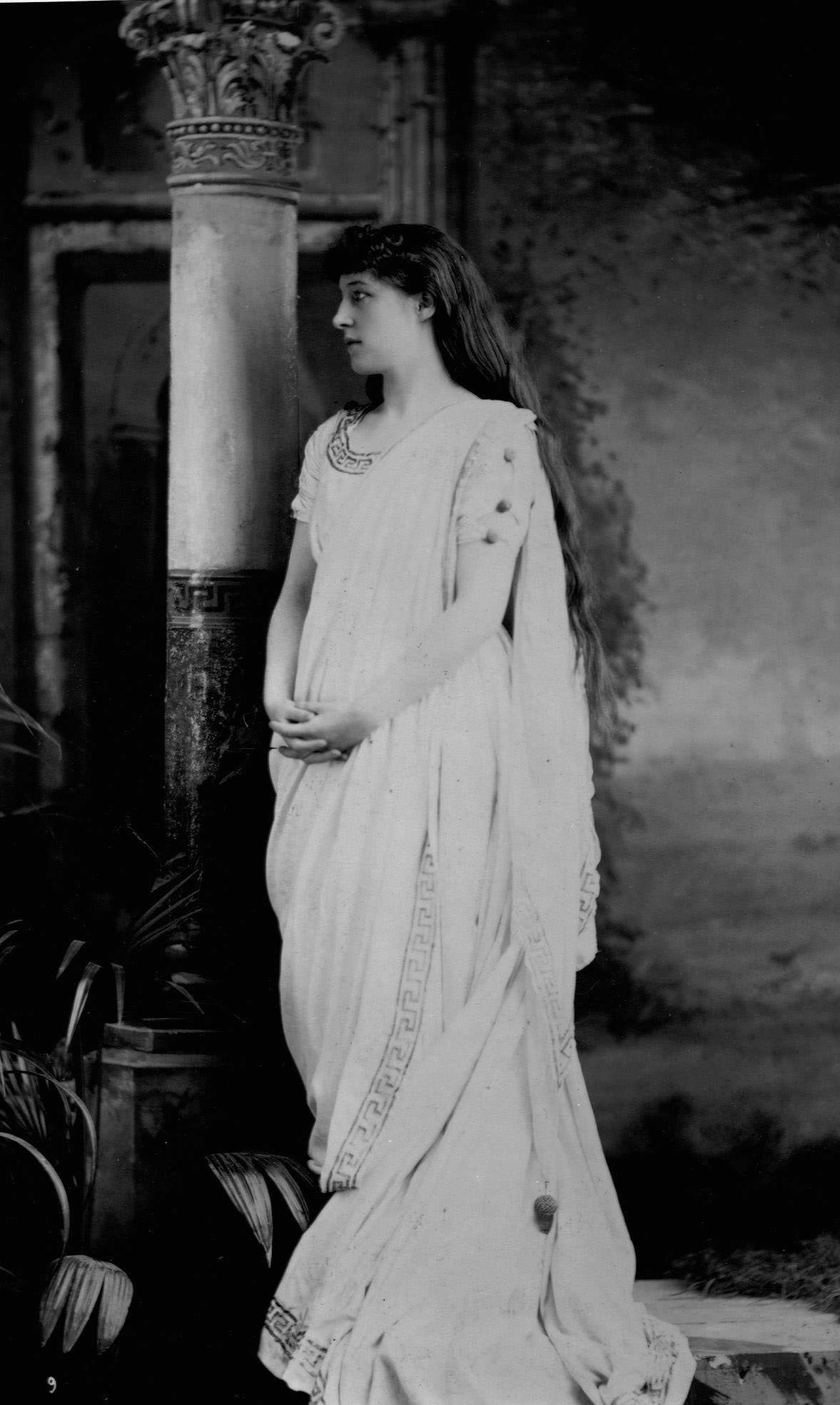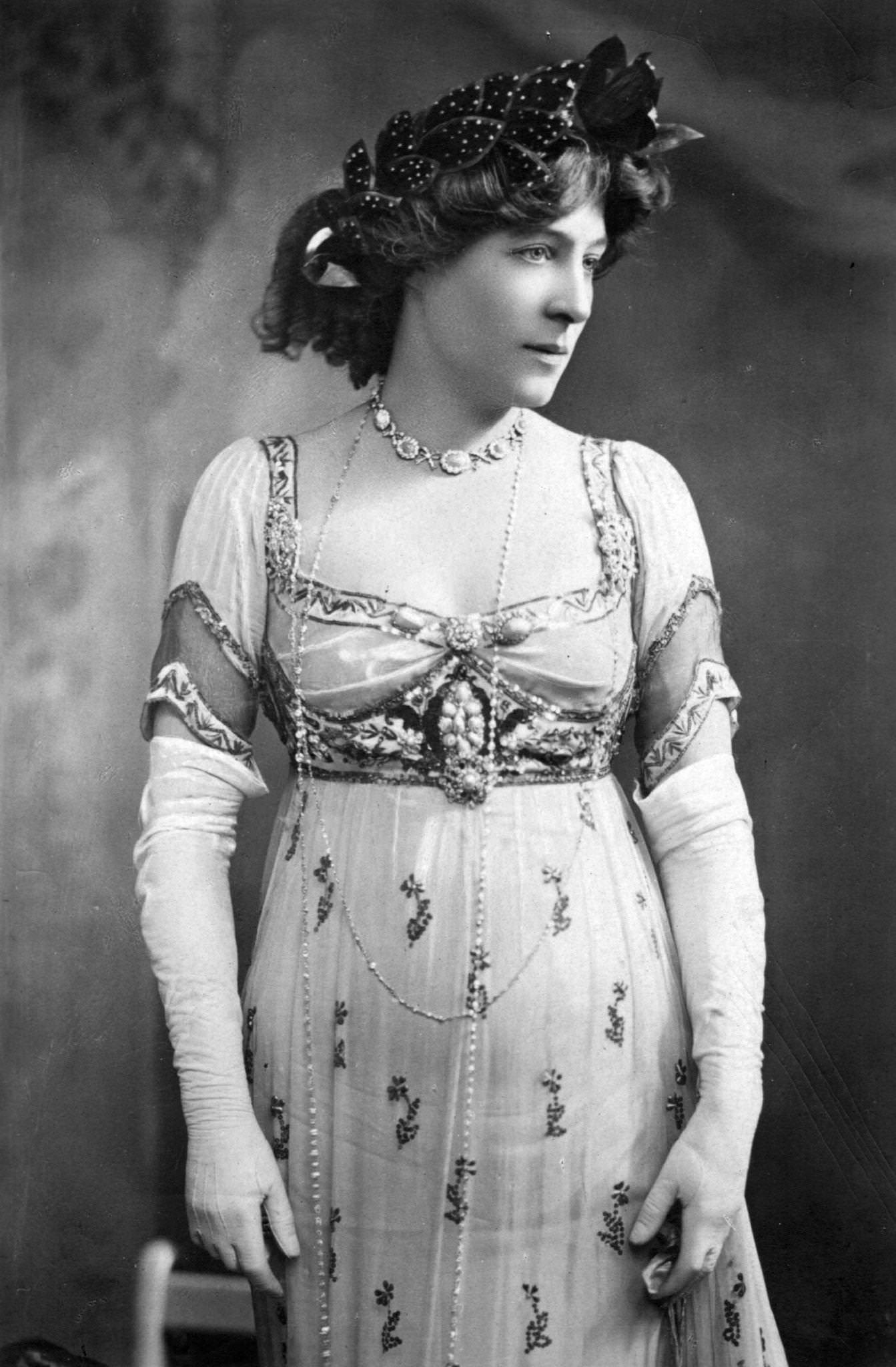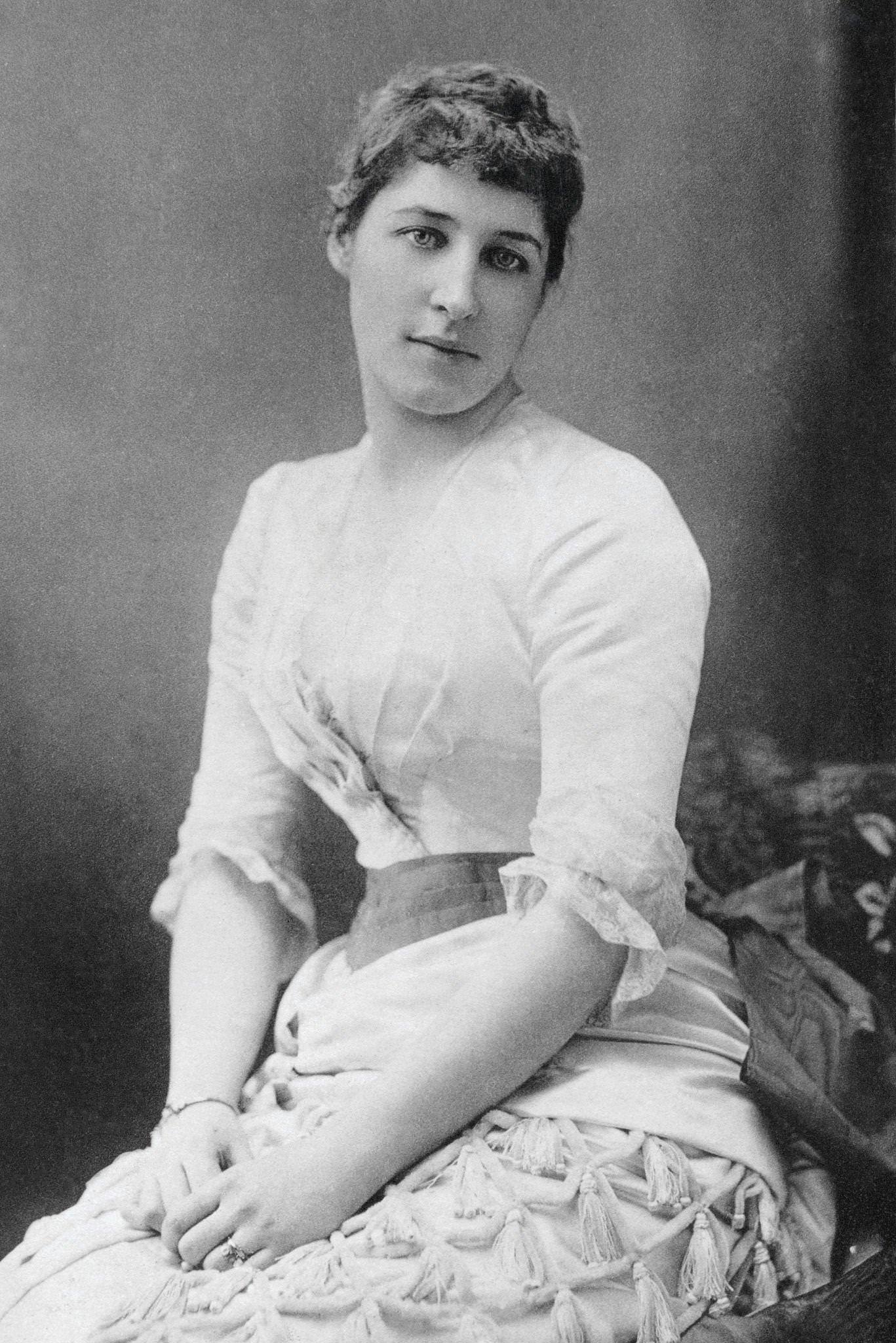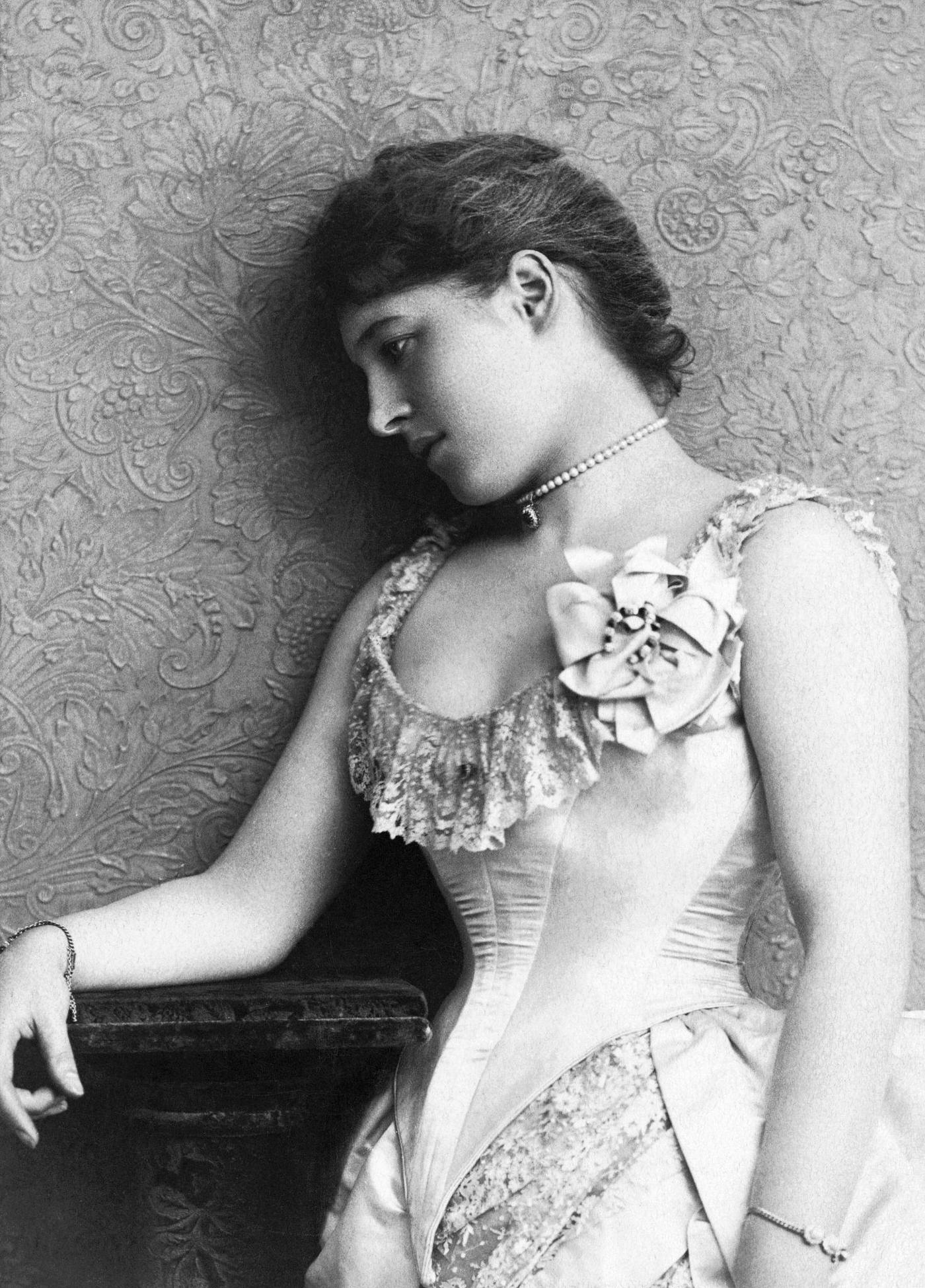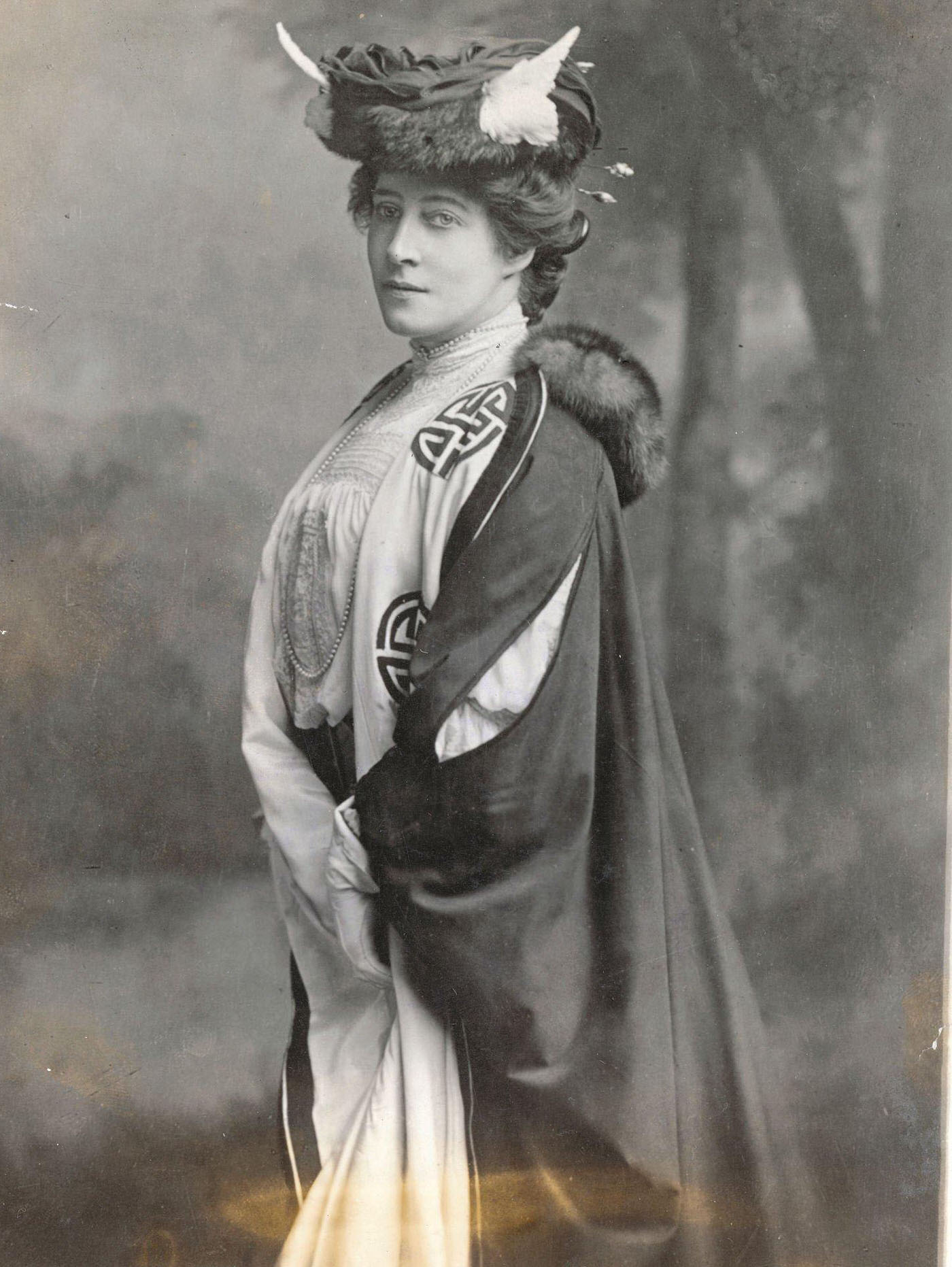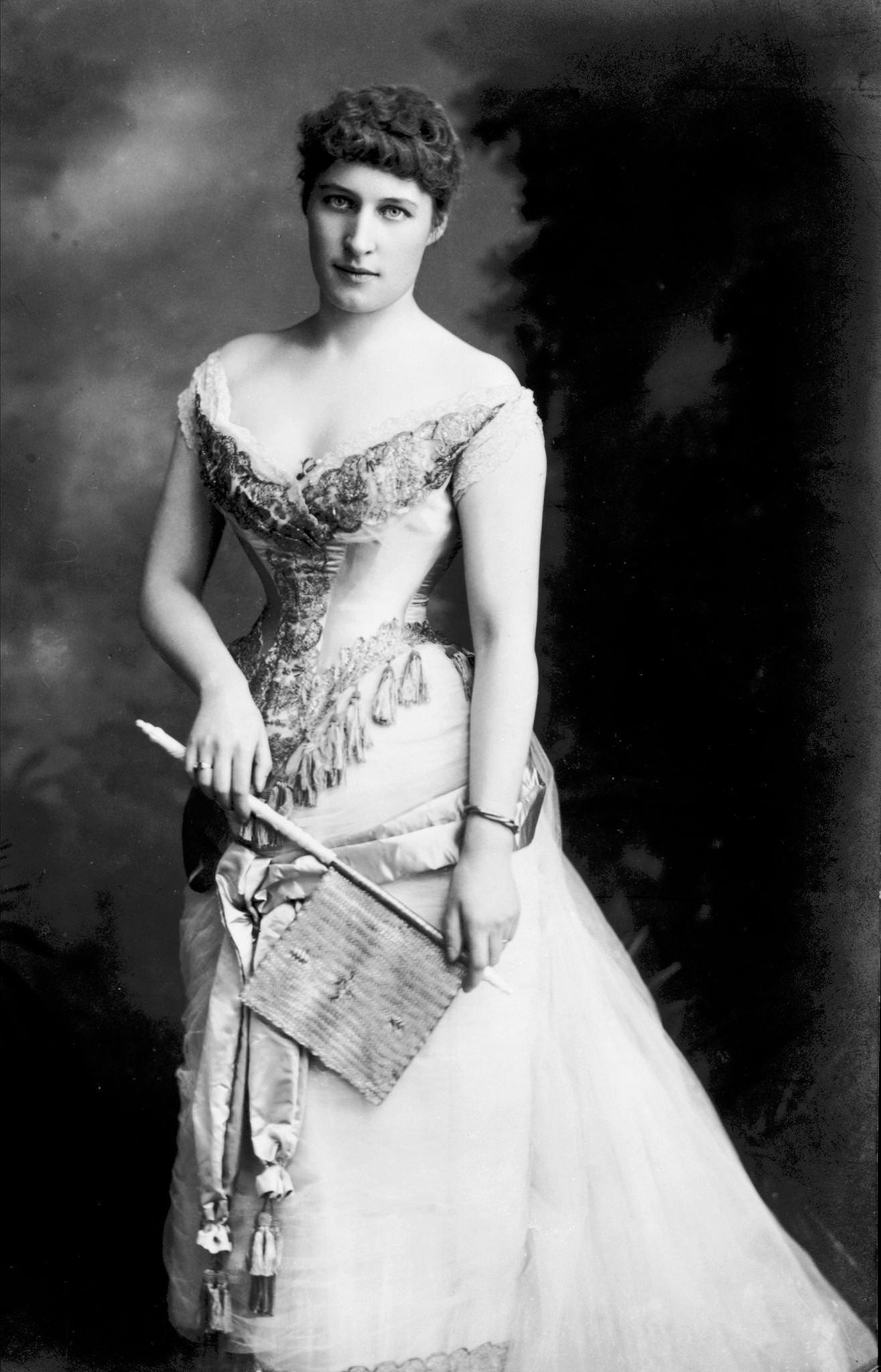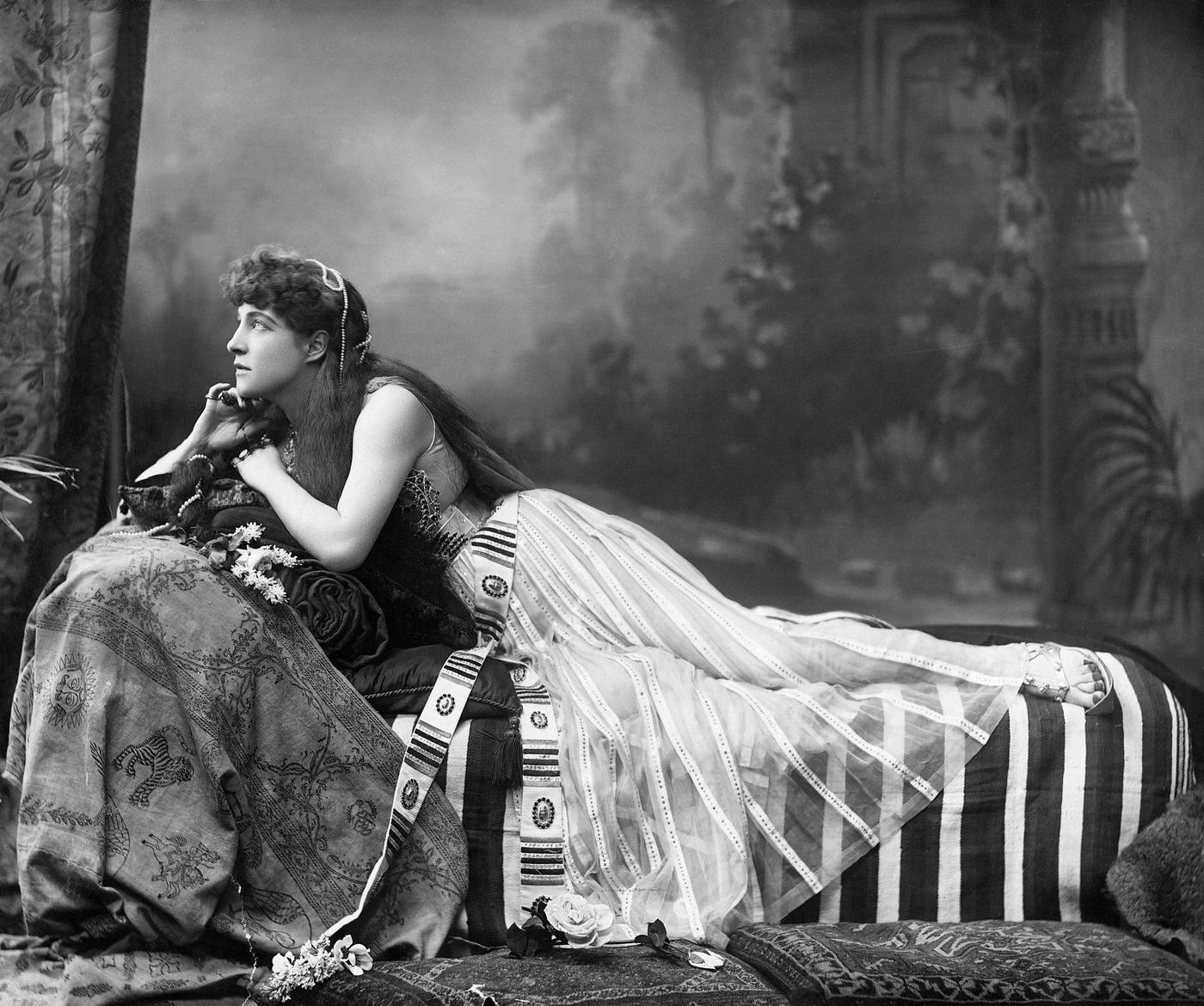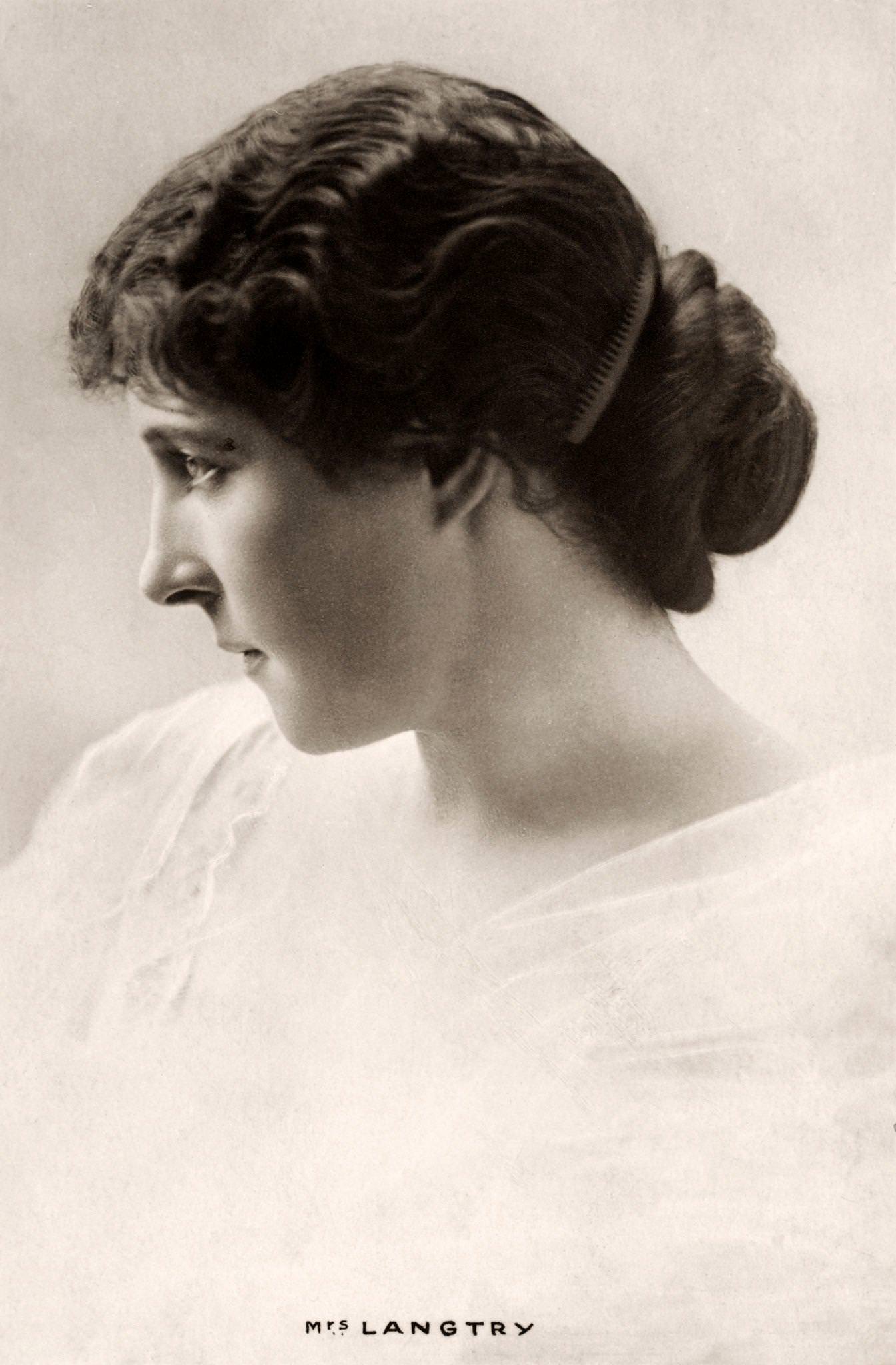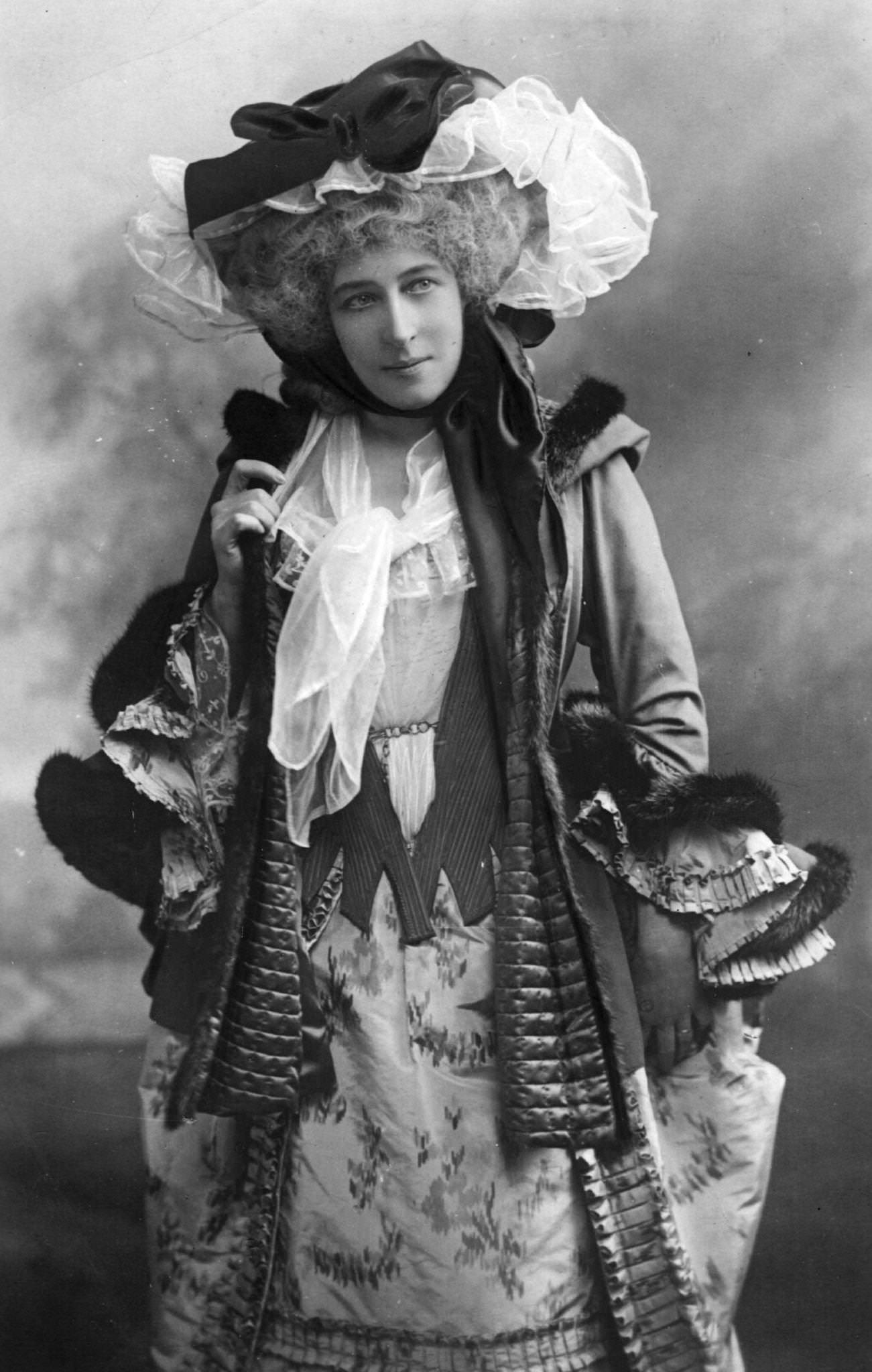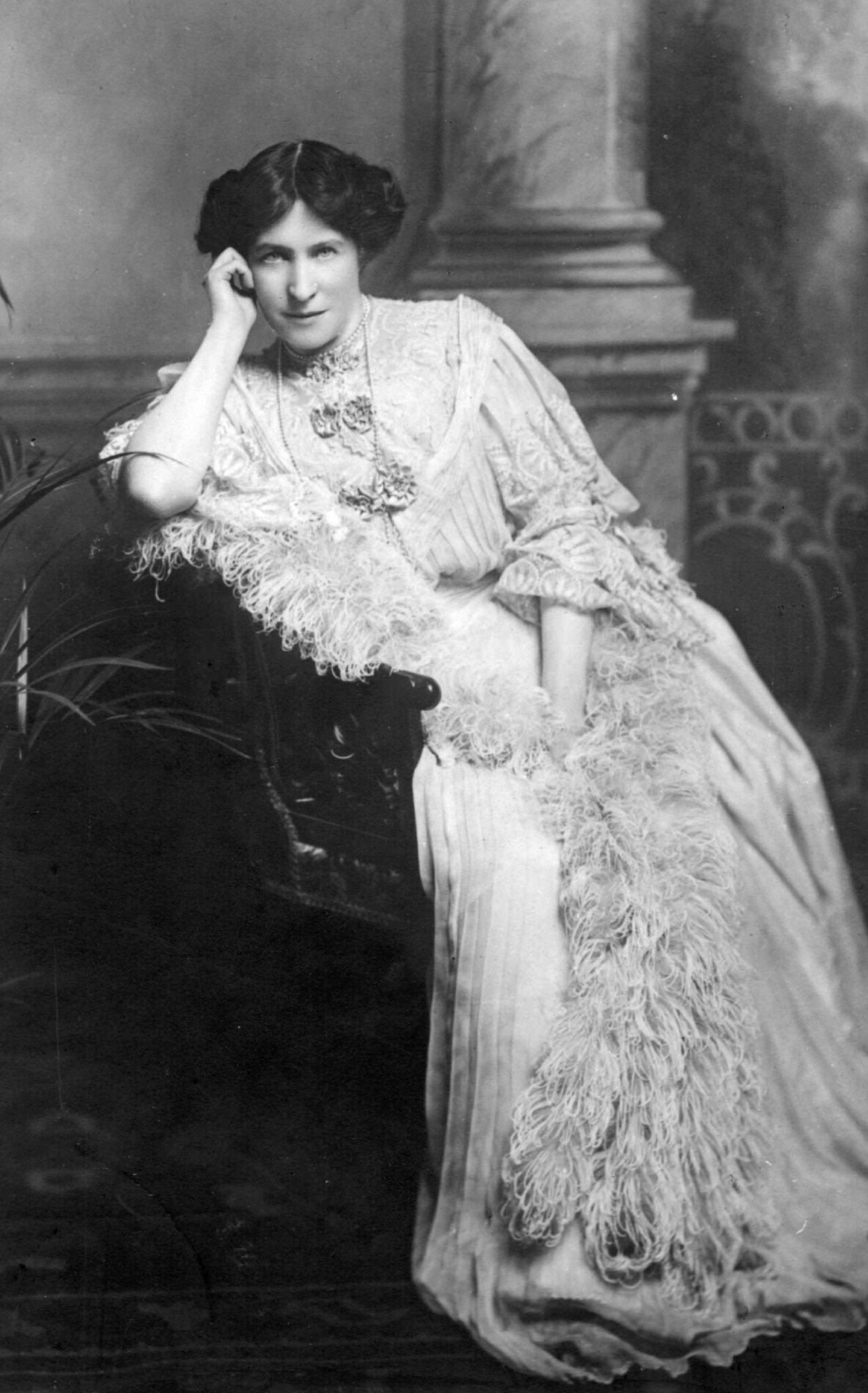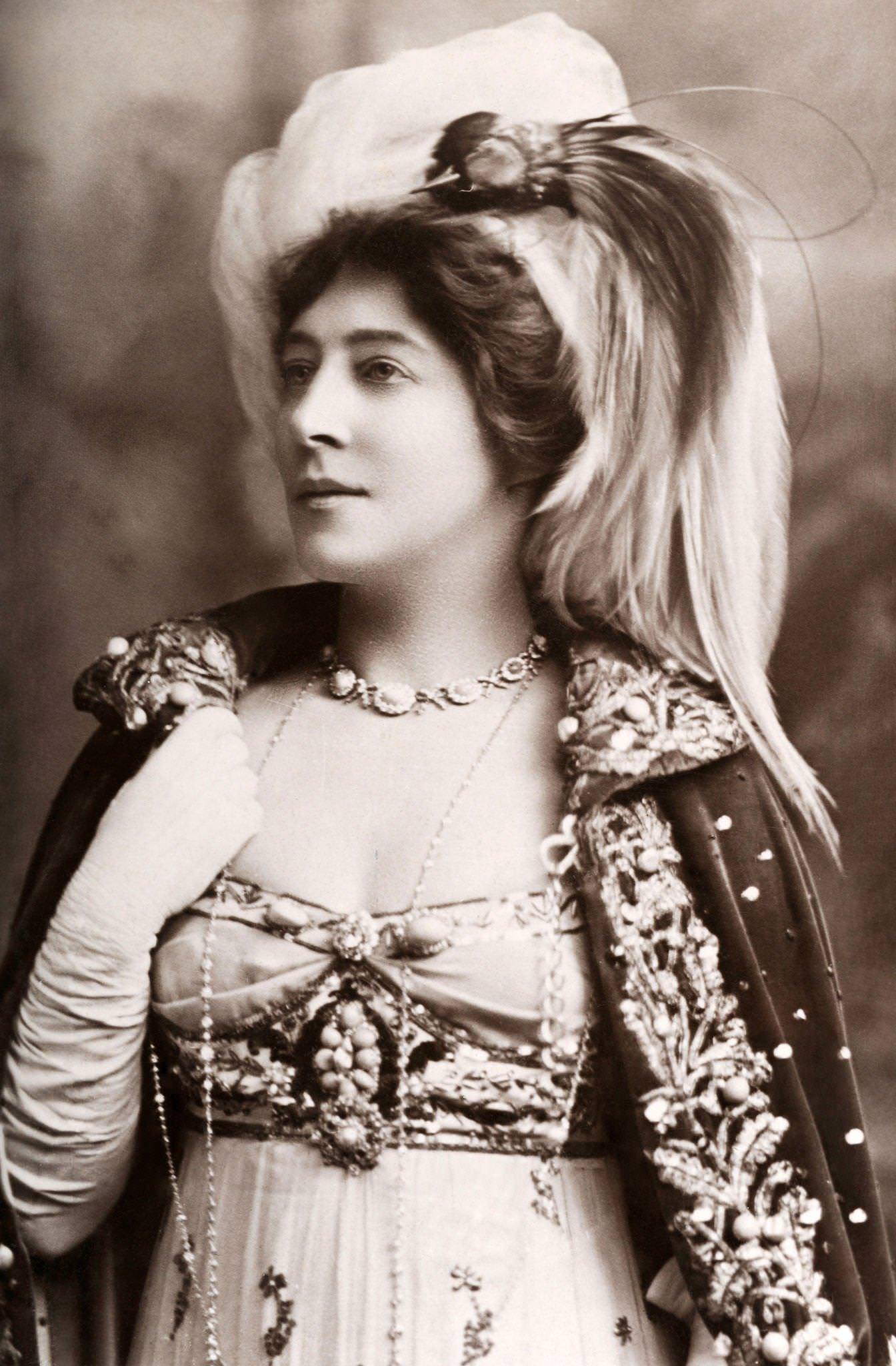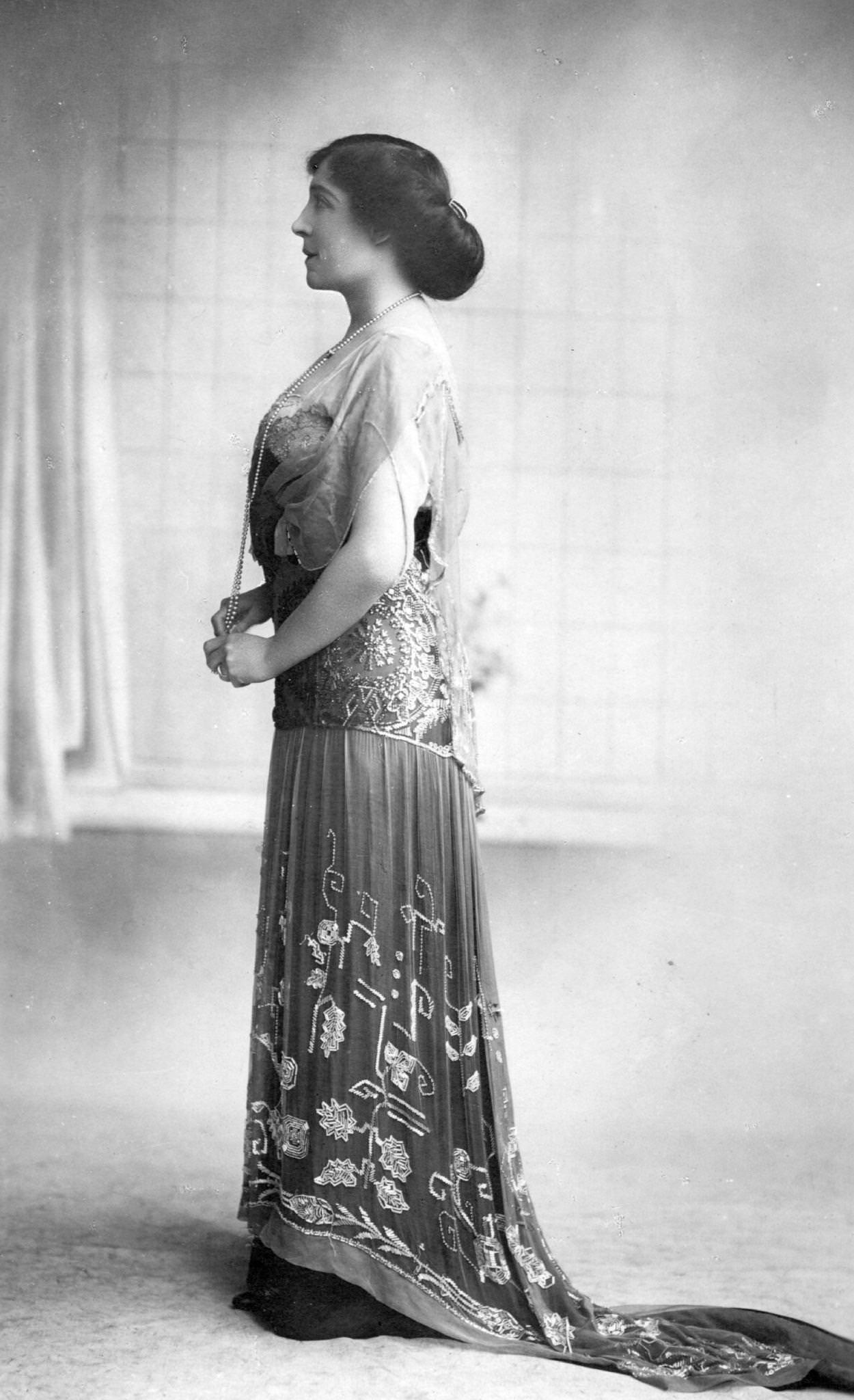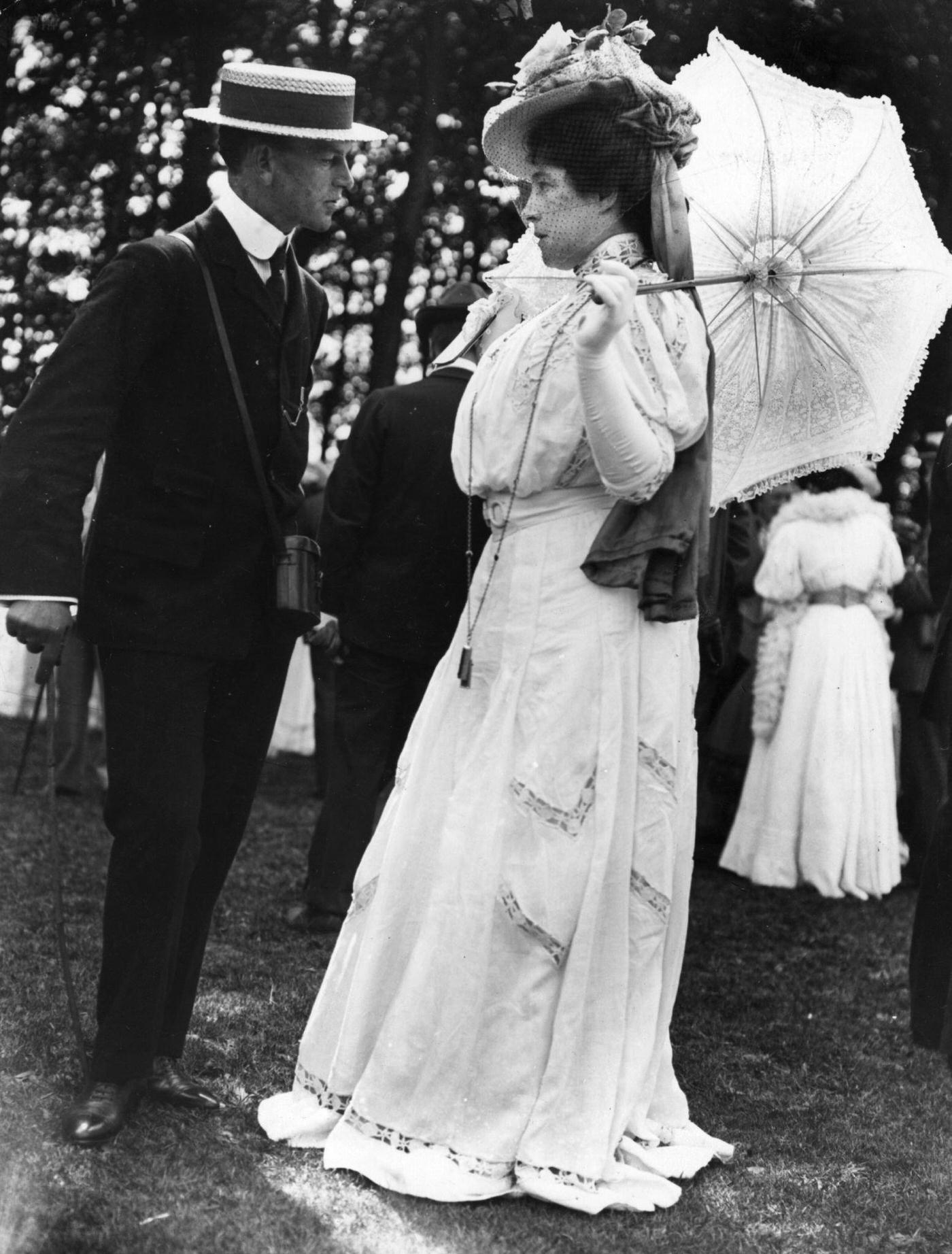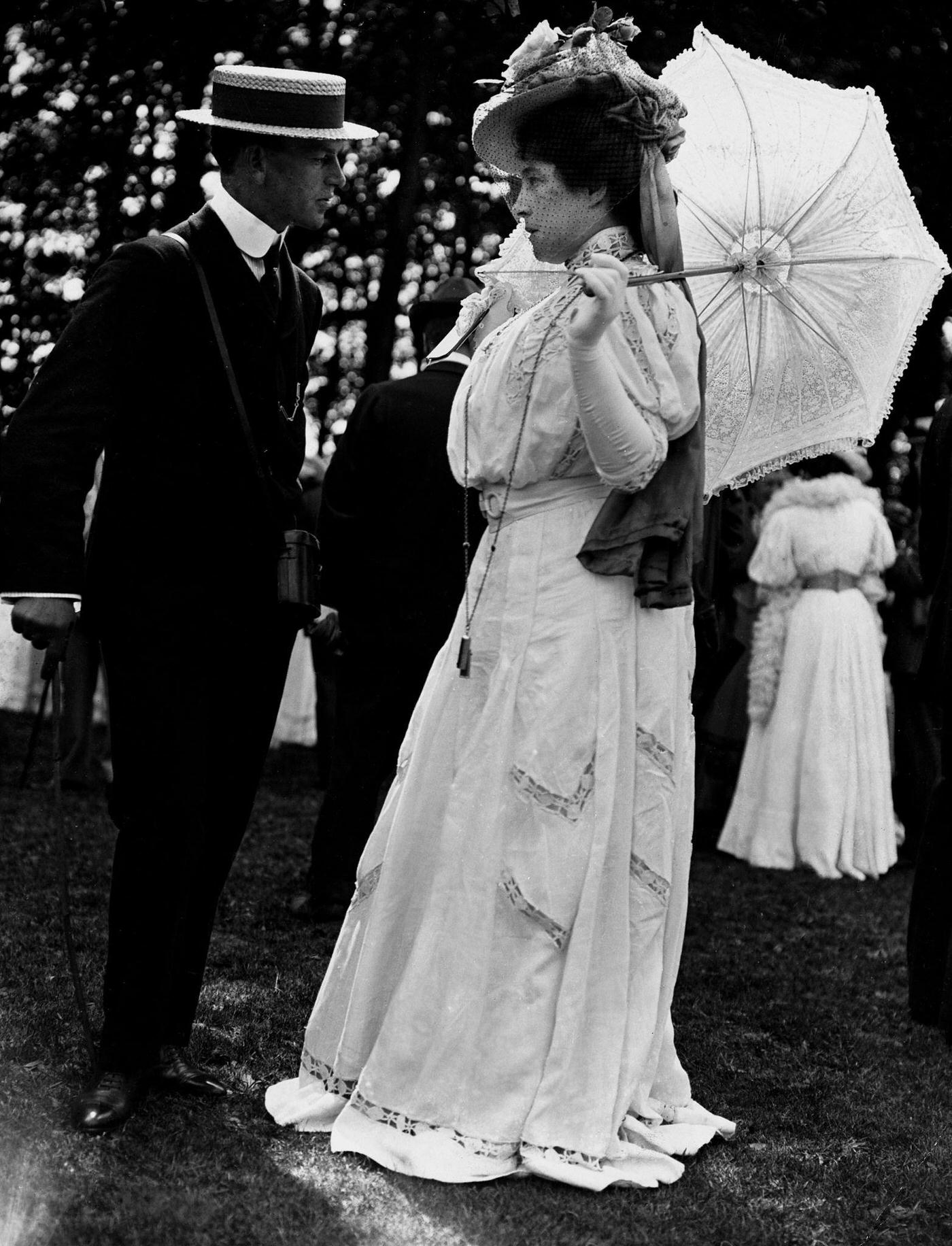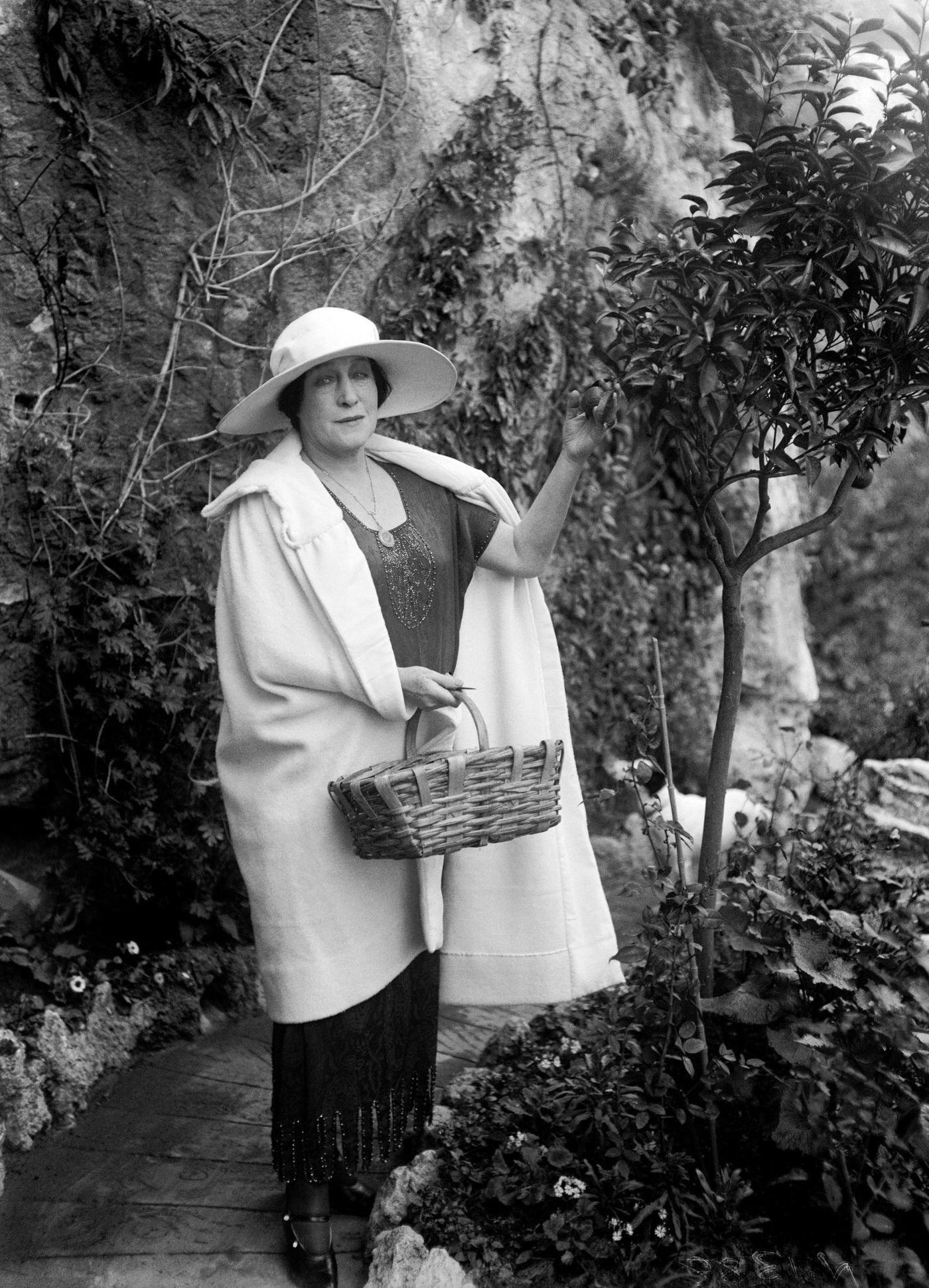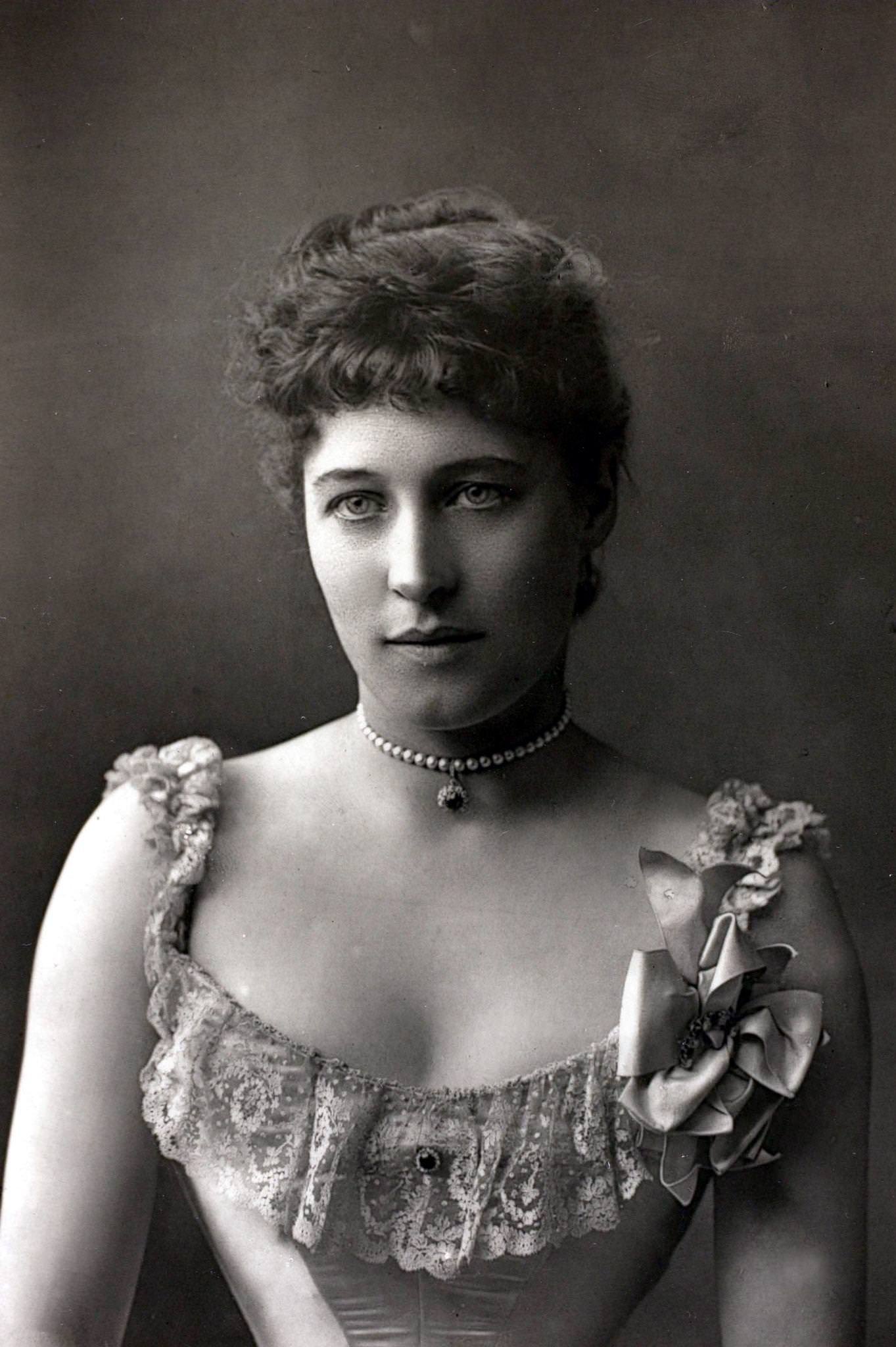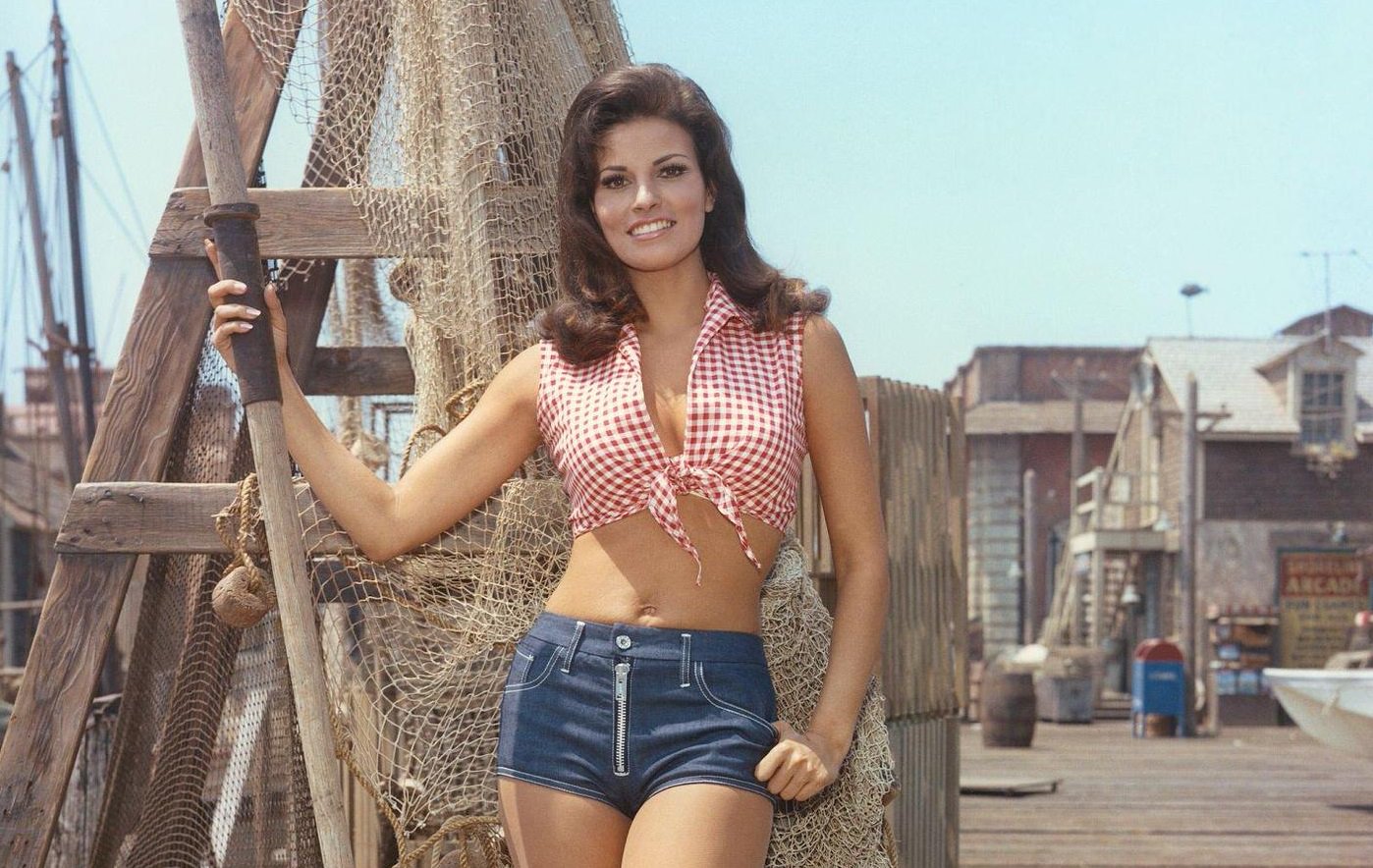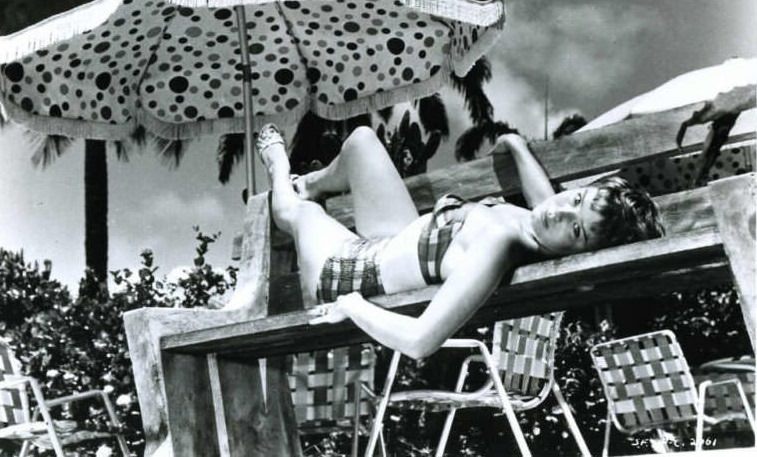Lillie Langtry was an enigmatic and captivating figure who rose to prominence in the late 19th and early 20th centuries. Born as Emilie Charlotte Le Breton on October 13, 1853, on the small island of Jersey in the English Channel, Lillie grew up surrounded by the serenity and beauty of nature. However, her charm and allure would eventually bring her to the forefront of British high society and beyond.
Lillie’s journey from quiet island life to London’s elite social circles began when she married wealthy widower Edward Langtry in 1874. Her mesmerizing beauty quickly gained her entry into London’s social scene, where she became a popular subject for photographers and artists alike. However, it wasn’t long before Lillie caught the eye of Albert Edward, the Prince of Wales and future King Edward VII. The two began a discreet but passionate love affair, further elevating Lillie’s societal status.
As Lillie’s fame grew, so did the public’s fascination with her life. The press eagerly covered her every move, and she became a fashion icon in her own right. Women across the country aspired to emulate her style and grace, while men were captivated by her charm and elegance. Lillie capitalized on her newfound fame and began pursuing a career on stage, making her debut as an actress in 1881. This move further solidified her status as a public figure, and she became one of the most sought-after performers of her time.
Lillie’s stage career brought her even more attention and accolades. She performed in both England and the United States, where she became a sensation. Her acting skills were widely praised, and she tackled various roles, ranging from Shakespeare to modern dramas. Despite the scandalous nature of her personal life, Lillie was able to win over audiences with her undeniable talent and captivating stage presence.
Although Lillie Langtry’s life was often shrouded in controversy, she was unapologetic in her pursuit of happiness and success. Her relationships with high-profile men, including the Prince of Wales, caused quite a stir in society, but Lillie was never deterred. She continued living on her terms, forging her path and breaking societal barriers.
Lillie’s resilience and determination extended beyond her acting career. In 1888, after divorcing her first husband, she married Sir Hugo de Bathe, an Irish aristocrat. This marriage brought her even greater wealth and the title of Lady de Bathe. In addition to her acting and social commitments, Lillie developed a keen interest in horse racing. She became a successful horse breeder and owner, with her horses often participating in prestigious races such as the Epsom Derby and the Grand National.
In her later years, Lillie Langtry continued to make headlines. She made history in 1901 when she became the first woman to appear in a British courtroom as a plaintiff. Lillie sued a newspaper for libel, further cementing her status as a trailblazer in a society that often sought to constrain and define women.


